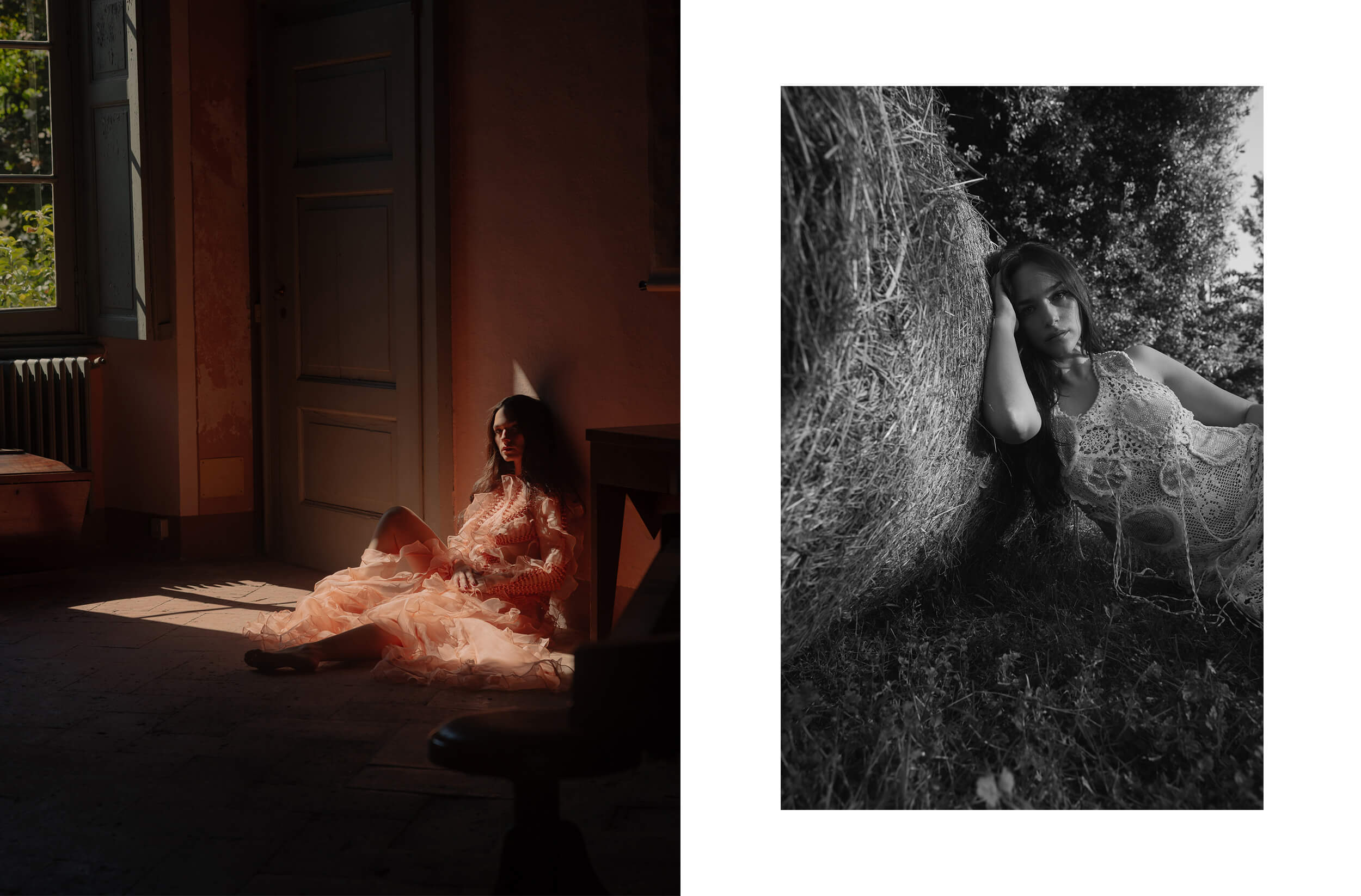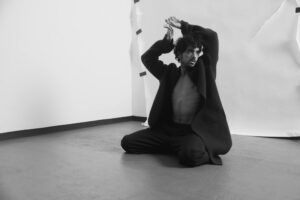There’s a moment in the film Riff Raff where Marina finds herself in a house full of memories that don’t belong to her, yet she chooses to live there anyway. Marina moves within that threshold between not belonging, wanting to trust, and letting herself fall in love, while Emanuela Postacchini, for Marina – as for other characters – abandons herself, “while still remaining herself.”
During our chat, Emanuela told me about her journey between dance and theater, about the first film set that changed her life, about what it means to feel part of a “cinematic family” alongside legends like Bill Murray and Jennifer Coolidge, and about the way Marina from Riff Raff, with her strength and sincerity, took on a symbolic meaning in her life. A story of belonging, of rebellions and choices, but above all, of how one can be a light, even at the heart of a dysfunctional story.
What is your first memory connected to cinema? When did you realize you had fallen in love with this world?
Actually, it all started with theater, when I was a teenager, maybe even earlier. I was part of a local dance school, and we would go to theaters in the Marche region to rehearse for our end-of-year show. During one of those rehearsals, I had the chance to see some actors on the stage of a beautiful theater, and from that moment, I became interested in that world. I was fascinated by acting, even though I didn’t know exactly what it was.
I remember I’ve always been a huge movie lover, to the point that even as a little girl, I would record some films and rewatch them endlessly! [laughs]. At some point, I realized I wanted to learn more, but the passion for cinema came naturally, as I was always close to theater through dance.
I started acting in local theaters, then I moved to Milan, continued studying there in a small theater, and then I went to Rome, where I started auditioning for film and television. At that time, I was lucky enough that one of the most important film agents in Rome noticed me during a commercial, an ad with Raúl Bova. He was his agent and asked me to come to Rome for some auditions. He told me, “You have a beautiful face, you seem very determined, intelligent—come, let’s give it a try.” So, I was lucky to meet the right person at the right time.
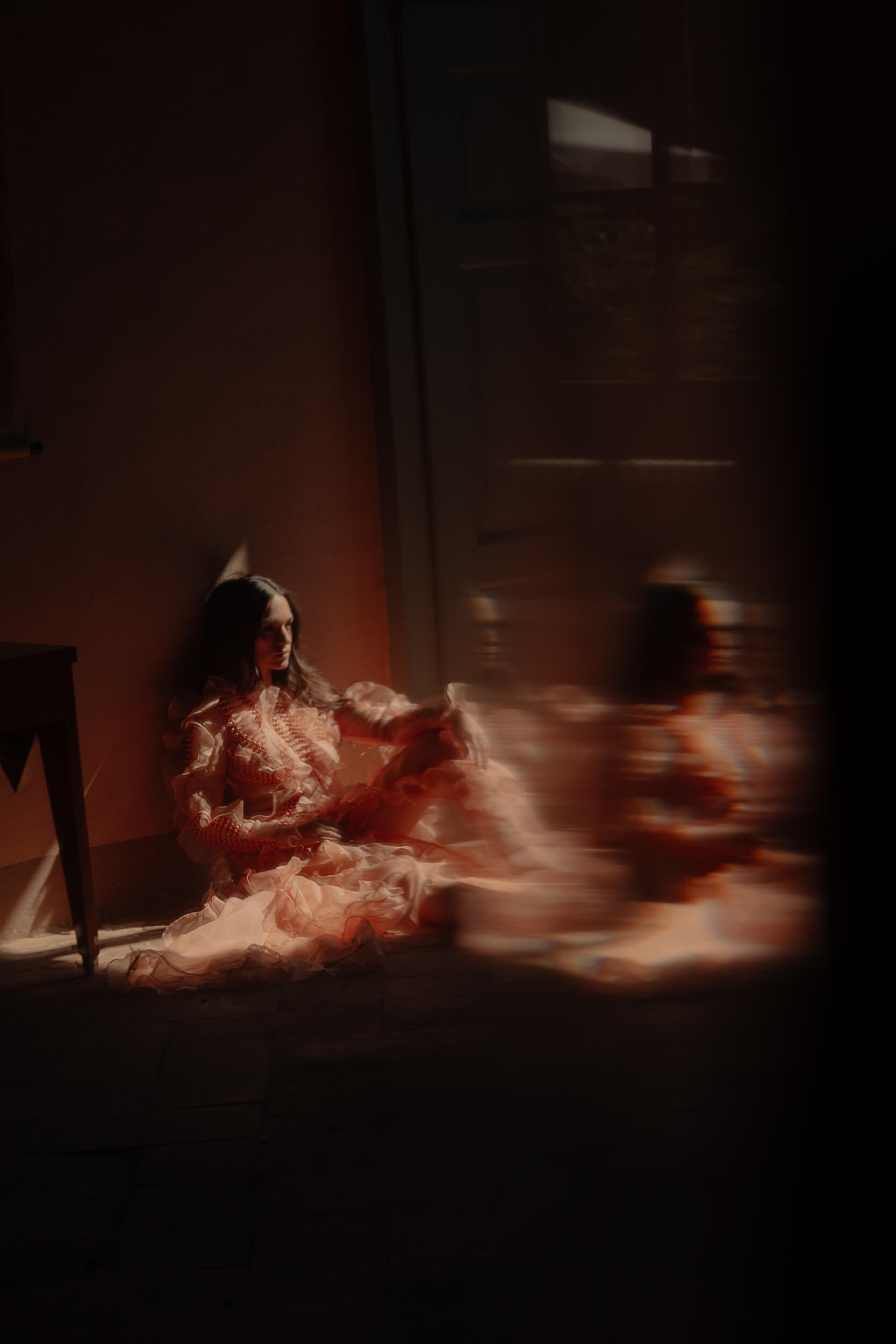
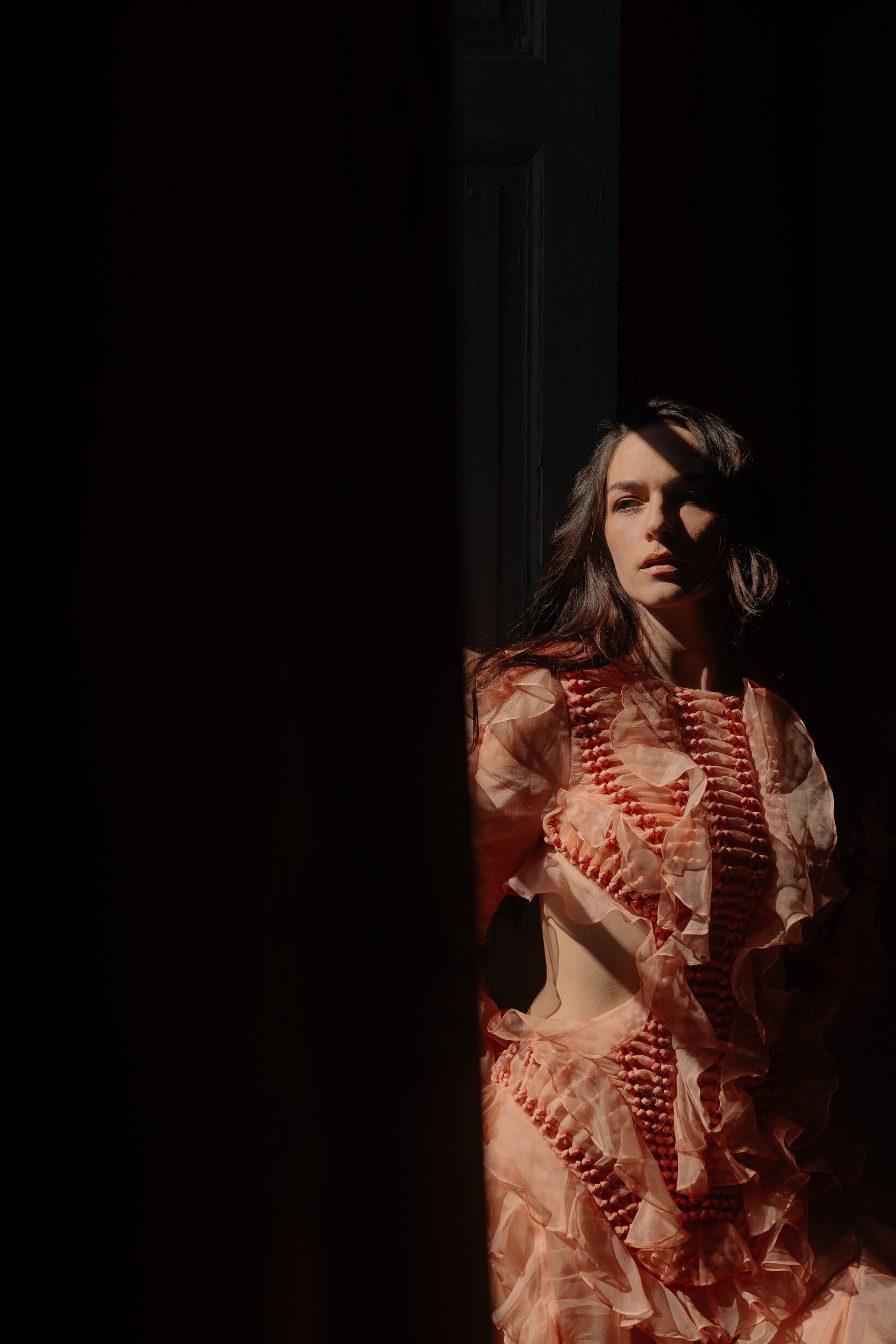
I watched Riff Raff last week, I loved it. I had the feeling it went by really quickly, even though it didn’t – it was just so engaging I didn’t want it to end. And the ending really surprised me.
One of the lines said right at the beginning of the film is “Families are complicated.” What was it like entering this complicated family?
That’s a great question. Certainly, many families have their dysfunctions. The film deals with difficult relationships between fathers and sons in various situations. In the case of Lewis Pullman’s character, Rocco, he has a complicated relationship with his father, just like D.J., played by Miles J. Harvey. These dynamics unfold in a surreal situation – that was my first thought when I read the script.
I prepared for my character thinking of Marina as an orphan; so, despite Rocco’s family being dysfunctional, she sees an opportunity to give a home, a family, and a future to the child she’s carrying.
I believe Marina and Rocco are the heart of this film. Marina hopes that Rocco’s family might represent for her and her child the kind of reality she never had. That was my vision of the story. In the end, despite everything, the family sticks together, and family wins over all.
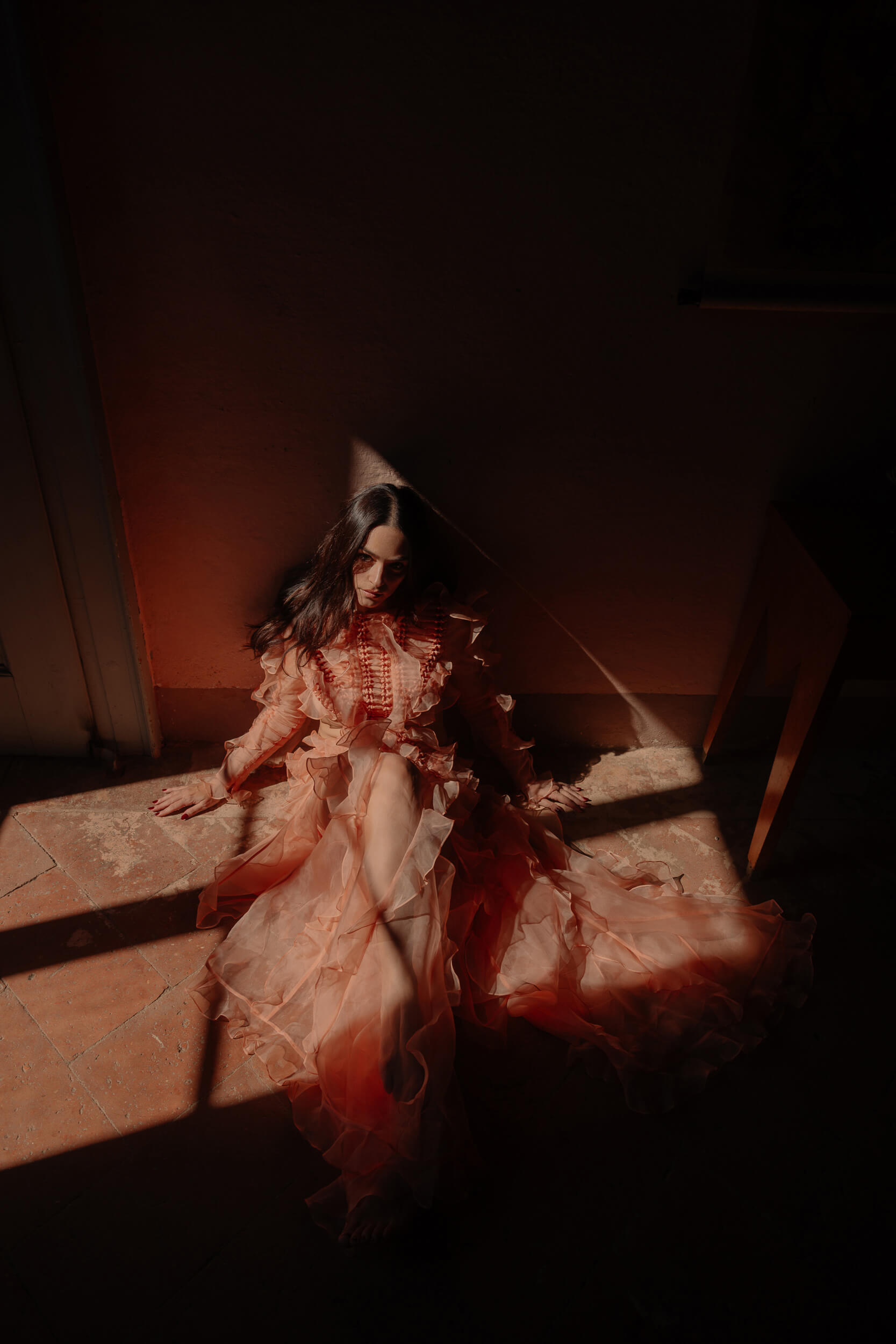
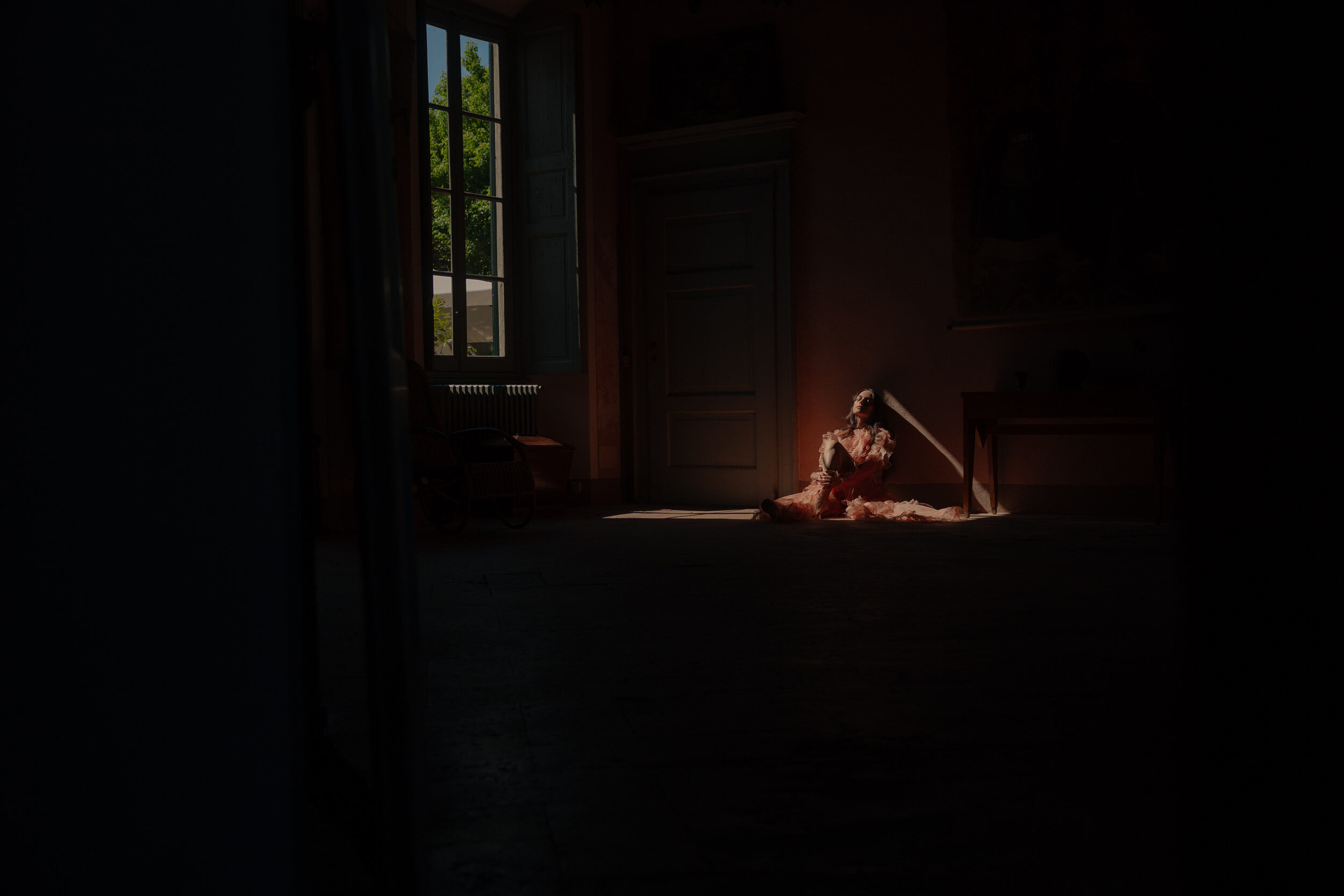
And how was it entering your own “cinematic family”?
It was one of the most beautiful sets of my life. We spent a month and a half between New York and New Jersey, and we really got to know each other.
I obviously spent a lot of time with Miles, Lewis, but also with Bill Murray and Jennifer Coolidge, who is fantastic. When people ask me, “What’s Jennifer really like?” I say, “She’s Jennifer Coolidge.” [laughs] What you see is what you get. The energy and chemistry you see on screen were absolutely present on set. The tension in certain scenes – you could feel it in real life.
From scene to scene, a beautiful synergy was created among all the actors, who are all very generous, even the most famous ones. One of the biggest lessons I learned from this film is that the greatest stars are the ones with the most humility. The true stars are those who encourage you and help you be yourself, despite the pressure of the set and the awe they may inspire.
Being in the same room as professionals like Bill Murray, Ed Harris – true legends – can be intimidating, especially for an actress like me, who’s still at the beginning of her career compared to them. But they always had a kind word, a joke to ease the tension that can be there at the start. They truly were a family for me – not a dysfunctional one [laughs].
There was a joyful, sunny energy on set, a light atmosphere of fun and ease. Of course, once the director called “action,” everything became very serious.
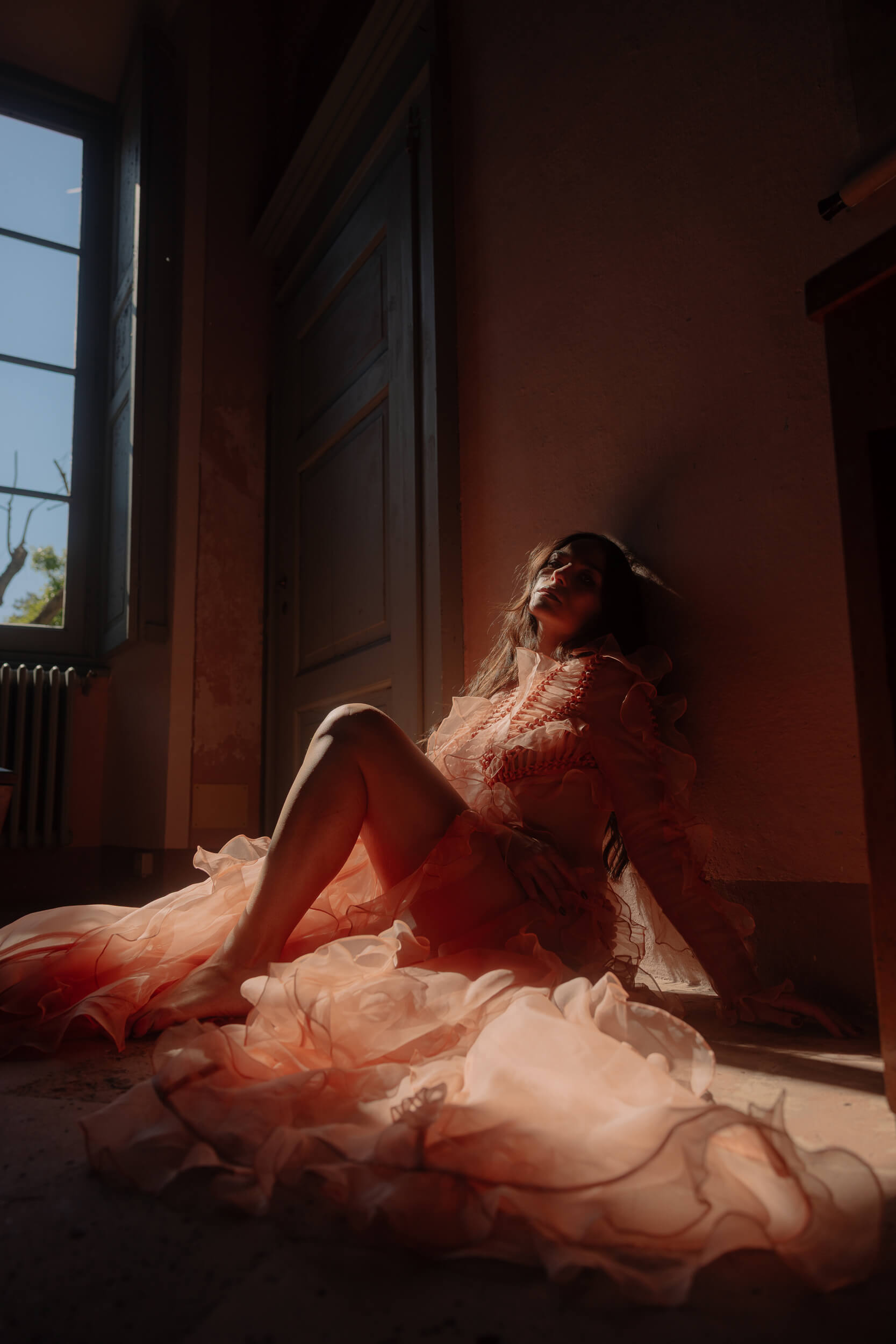
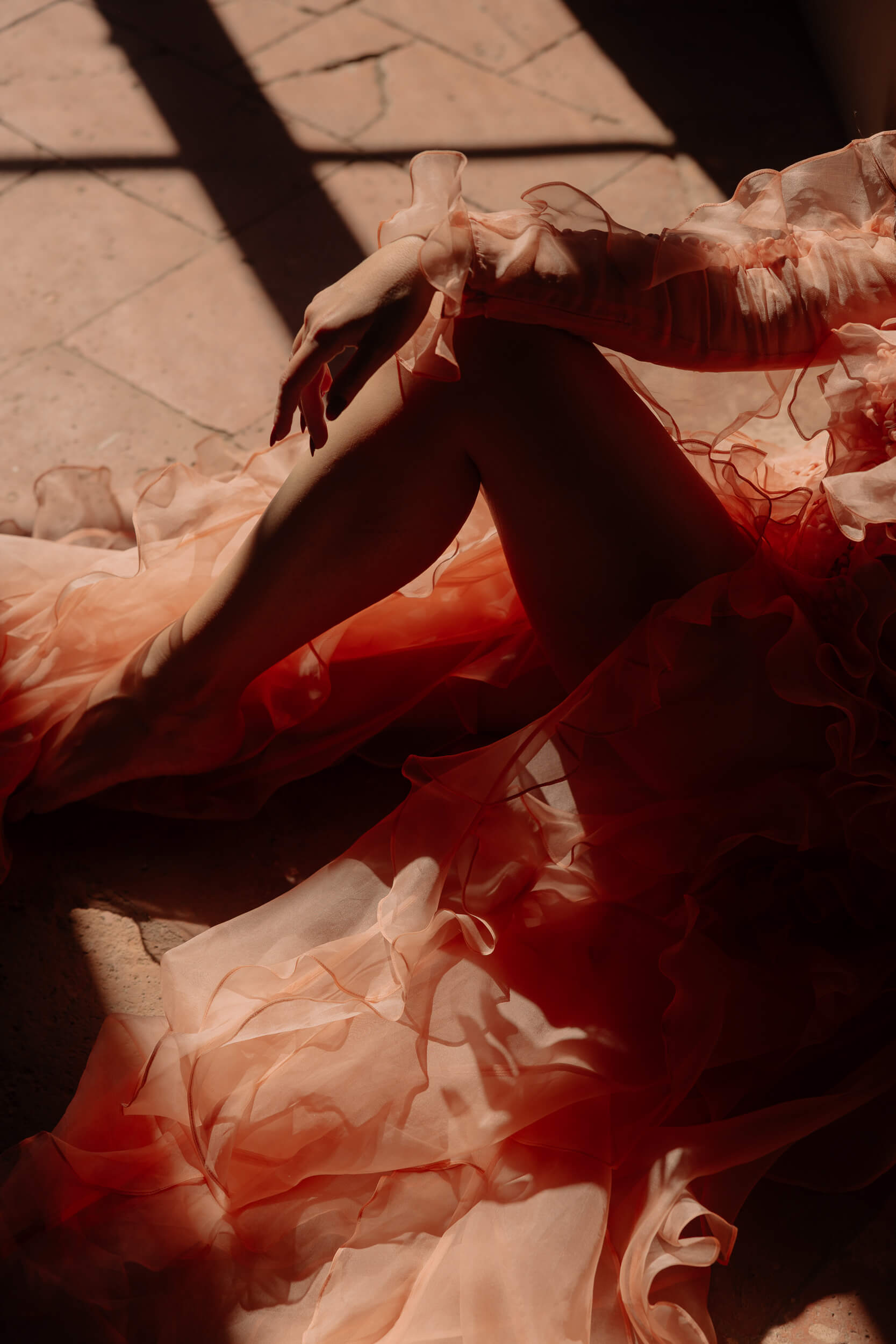
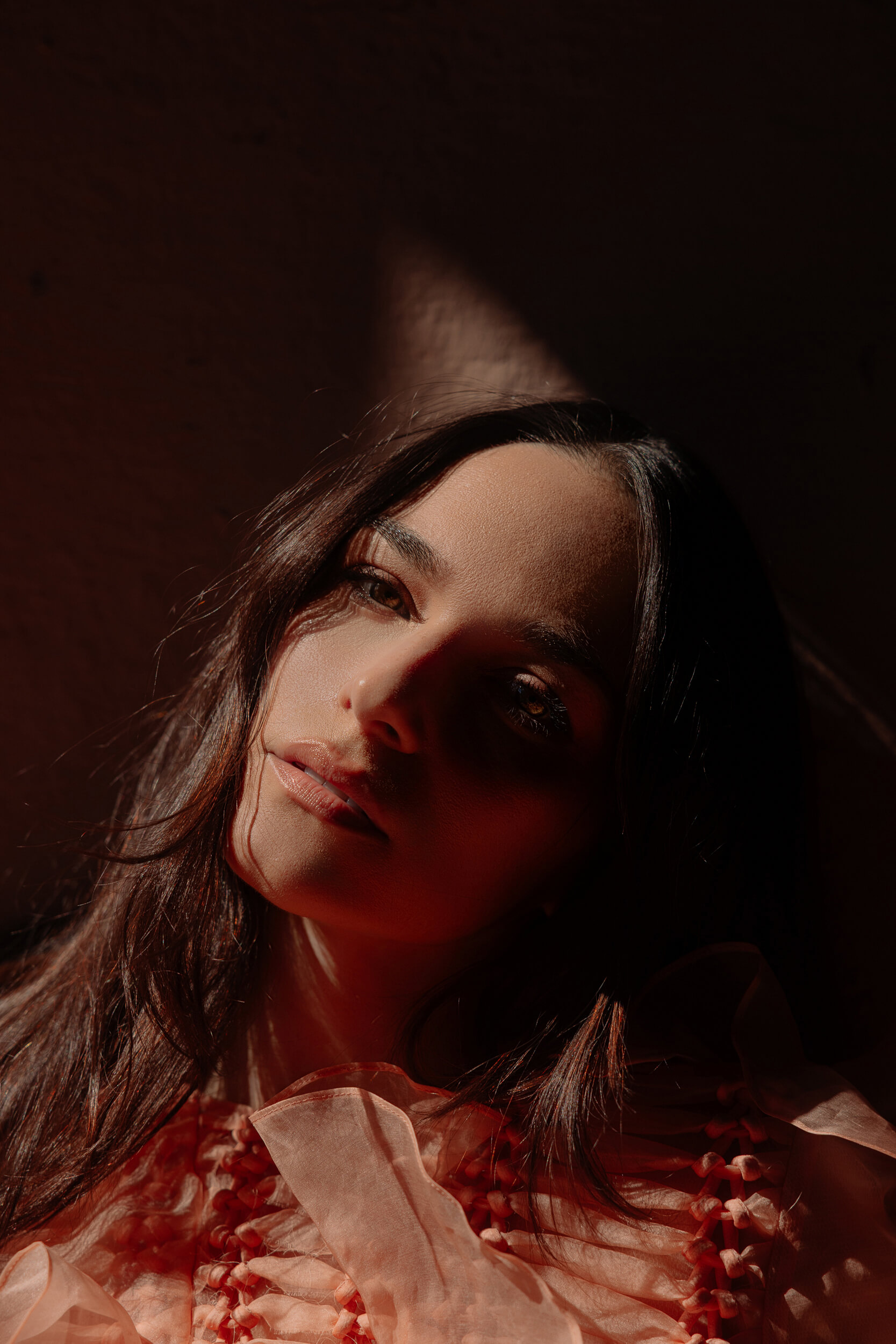
“From scene to scene, a beautiful synergy was created among all the actors, who are all very generous, even the most famous ones.”
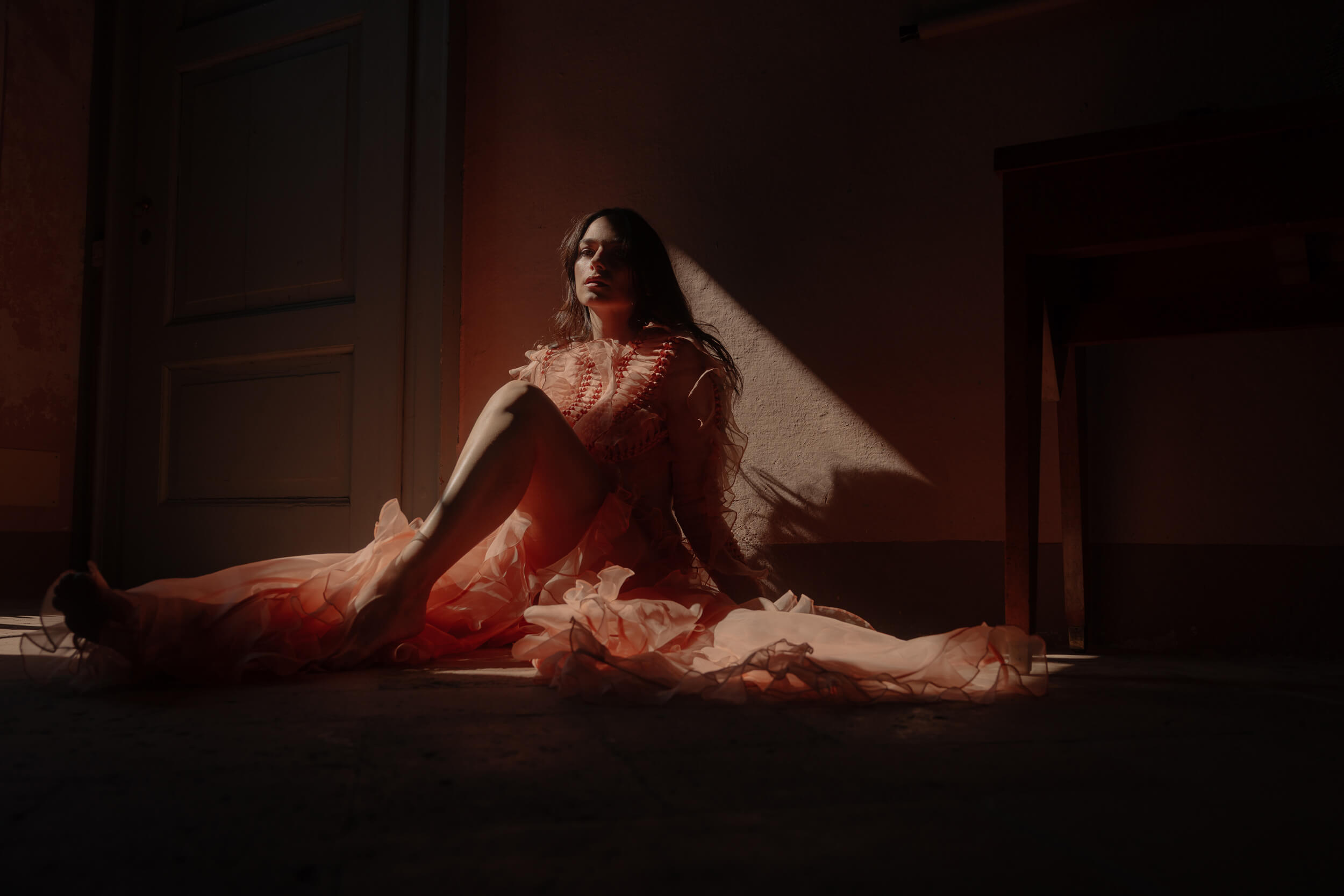
What you said earlier about Marina really came through in the film. She seemed like a slightly ethereal character compared to everyone else, different somehow. She prays, she believes in love, she’s full of hope. She’s very intelligent and knows what she’s doing, but it’s like she wants to lighten the burdens everyone else is carrying. How did you manage to create this character who felt like “the light” of the film? I don’t know why, but when you were on screen, there was literally a different light…
Dito Montiel, the director, gave me tremendous freedom – both expressive and communicative from our first conversations about Marina to the concrete portrayal of her in the film. Initially, the role had been written for a French actress, so they wanted Marina to have a French accent, to say some lines in French. I auditioned in French, because I speak it – I could’ve done it. But at the callback, I was obviously speaking English with my own European – but not French – accent. I remember Dito asked me, “Where did the French accent go?” and I explained that I was Italian. He went silent and then said, “You know, I’ve been thinking… maybe making Marina Italian actually makes more sense for the story. Maybe it’s no coincidence that we’re talking right now.”
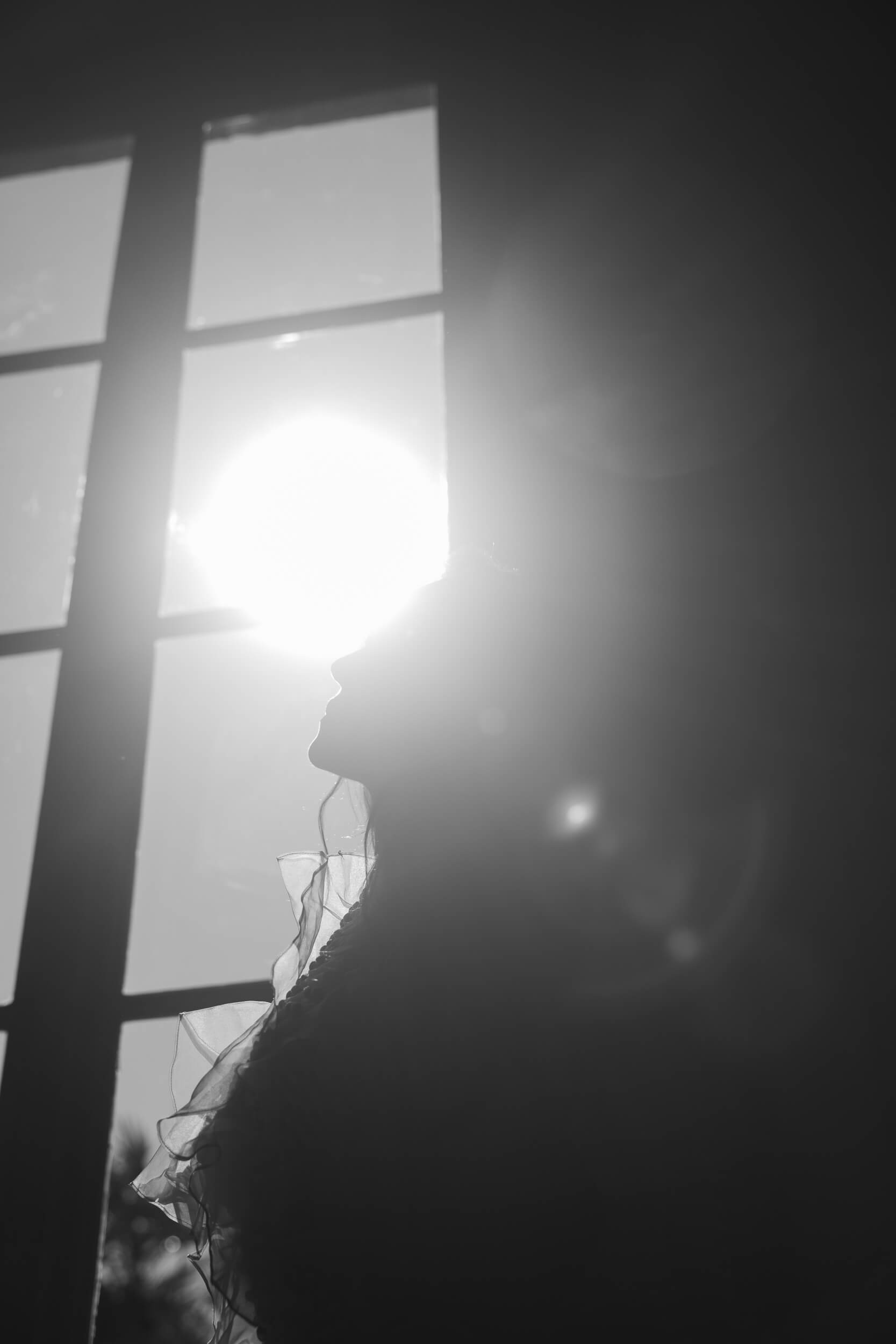
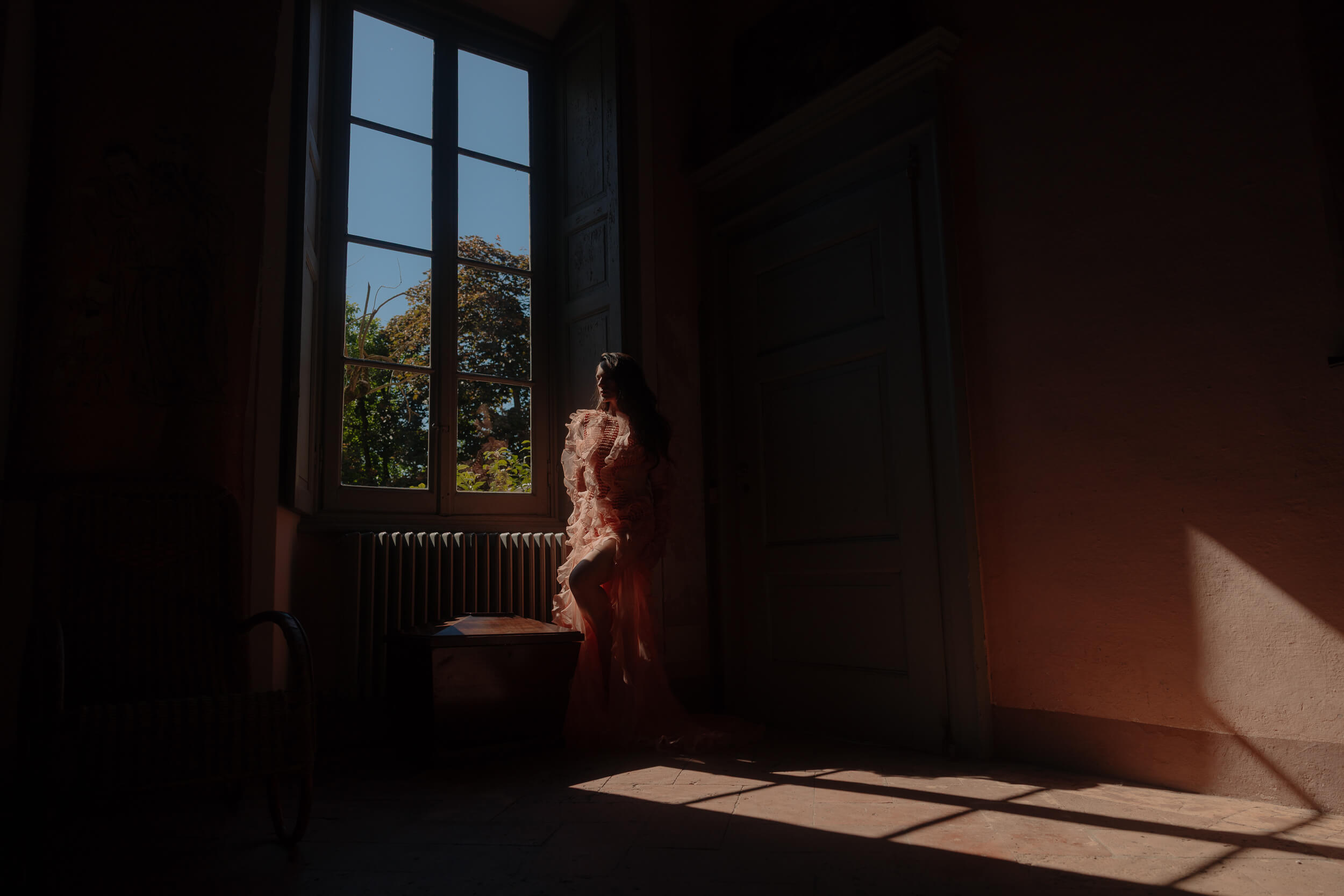
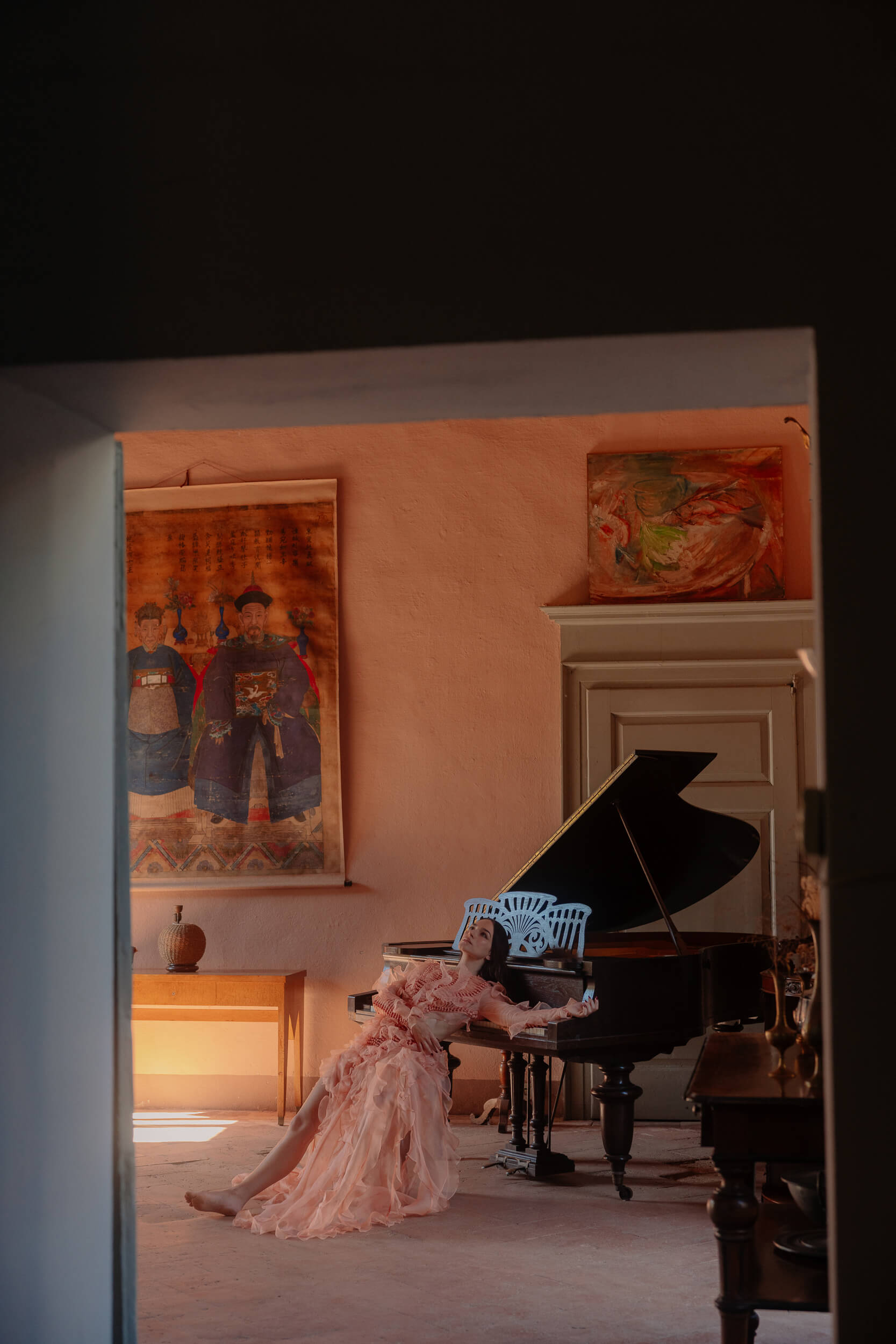
So, from the moment I did the first audition, I felt that the role of Marina would somehow be mine. What I’m really proud of is that Dito allowed me to bring my Italian identity to Marina. They even changed her last name for me, from Marina Mercier to Marina Bravo, which was a huge honor. Dito was so generous, even in listening to my needs.
As for the character, Marina is, like you said, a bit of a dreamer. She sometimes wears armor, but she’s an incredibly genuine person. As I mentioned, she probably had a difficult past, which made her real and sensitive. Marina has a heart of gold and a lot of love to give, even in the most difficult situations.
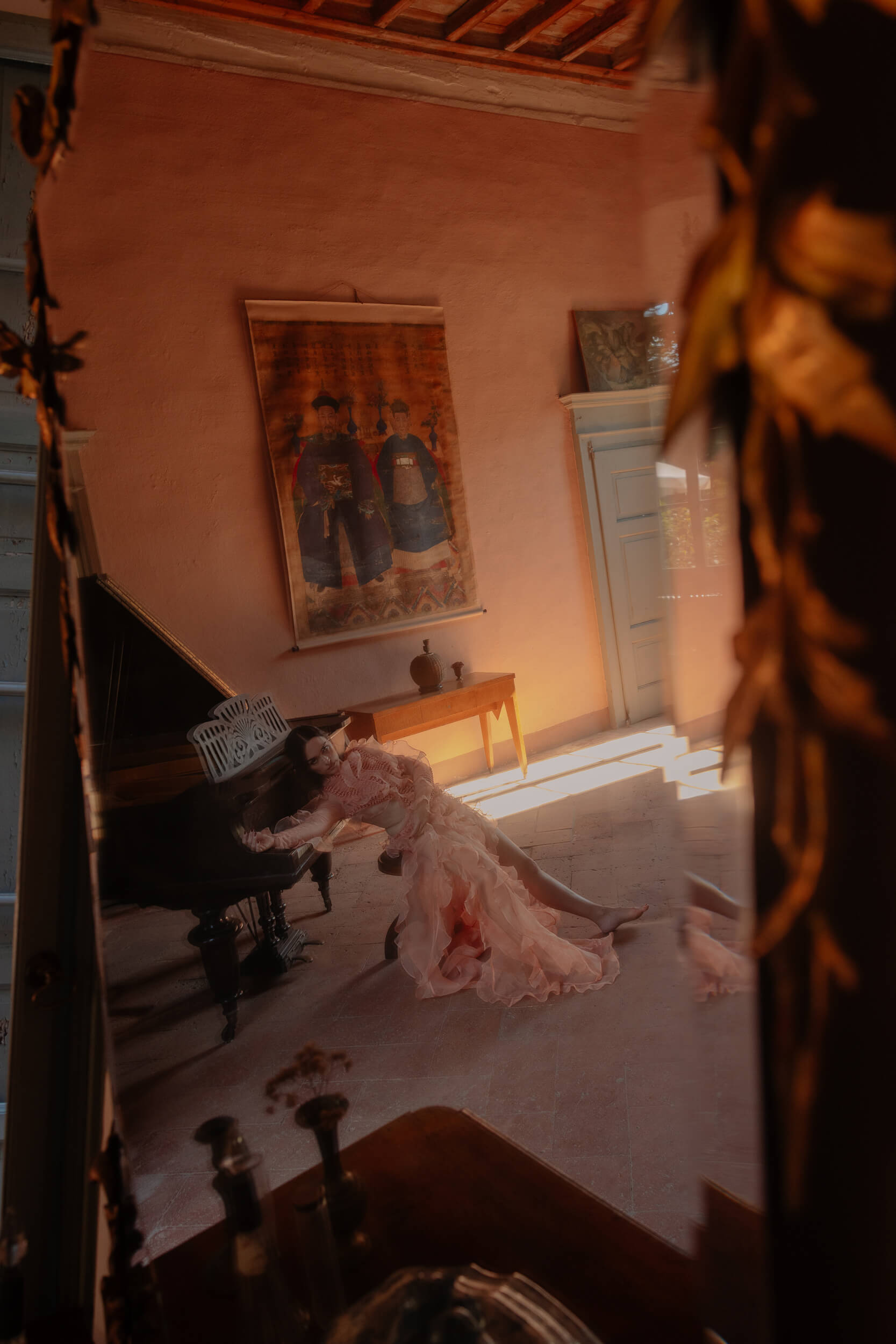
“What I’m really proud of is that Dito [Montniel] allowed me to bring my Italian identity to Marina.”
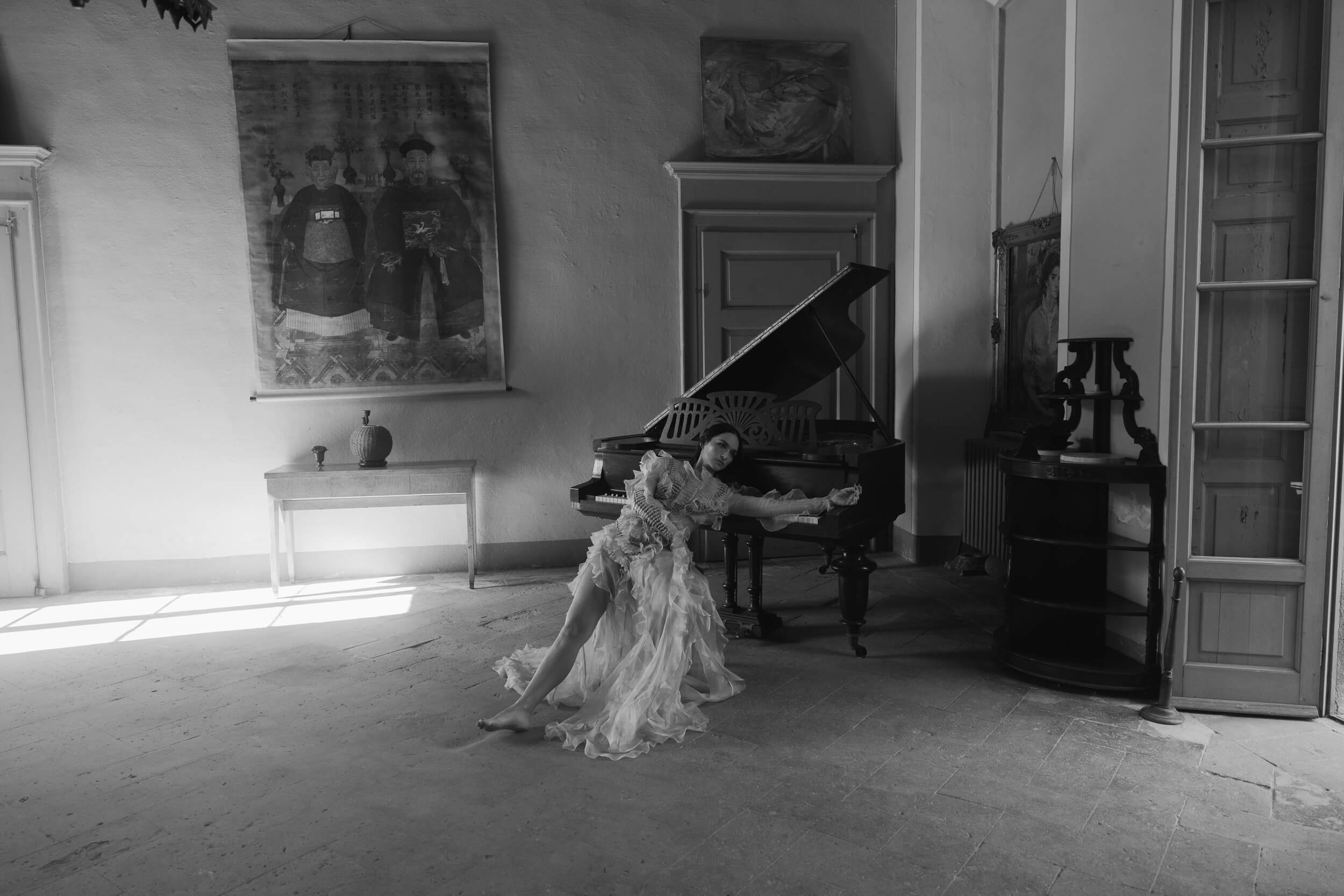
The film really hooked me, especially the constant contrasts: something happens, and then the exact opposite happens, like at the start, when D.J. can’t even shoot a squirrel, and later he points a gun at his father; or the violent scenes with Rocco versus the beautiful love scenes between you two. The flashbacks are also very prominent…
Yes, Miles and I have several flashbacks, and then there are beautiful voiceovers with me, Lewis, and D.J., which I think add a lot of sensitivity to the film. Miles did an amazing job, and D.J. was really great too. I remember when we shot the kitchen scene – when we talk about love, about how you’ll know real love when you meet the right person – he had to deliver a very deep, serious line. He said it with such nonchalance that I felt a huge admiration for him – so young and so talented.
When we presented the film at the Toronto International Film Festival, I was actually pregnant for real, and I only watched the film because the producers and my partner forced me to – because I hate seeing myself on screen. Like you said, time flew by in the theater – I found the film very dynamic, very funny, and also very raw in certain scenes.
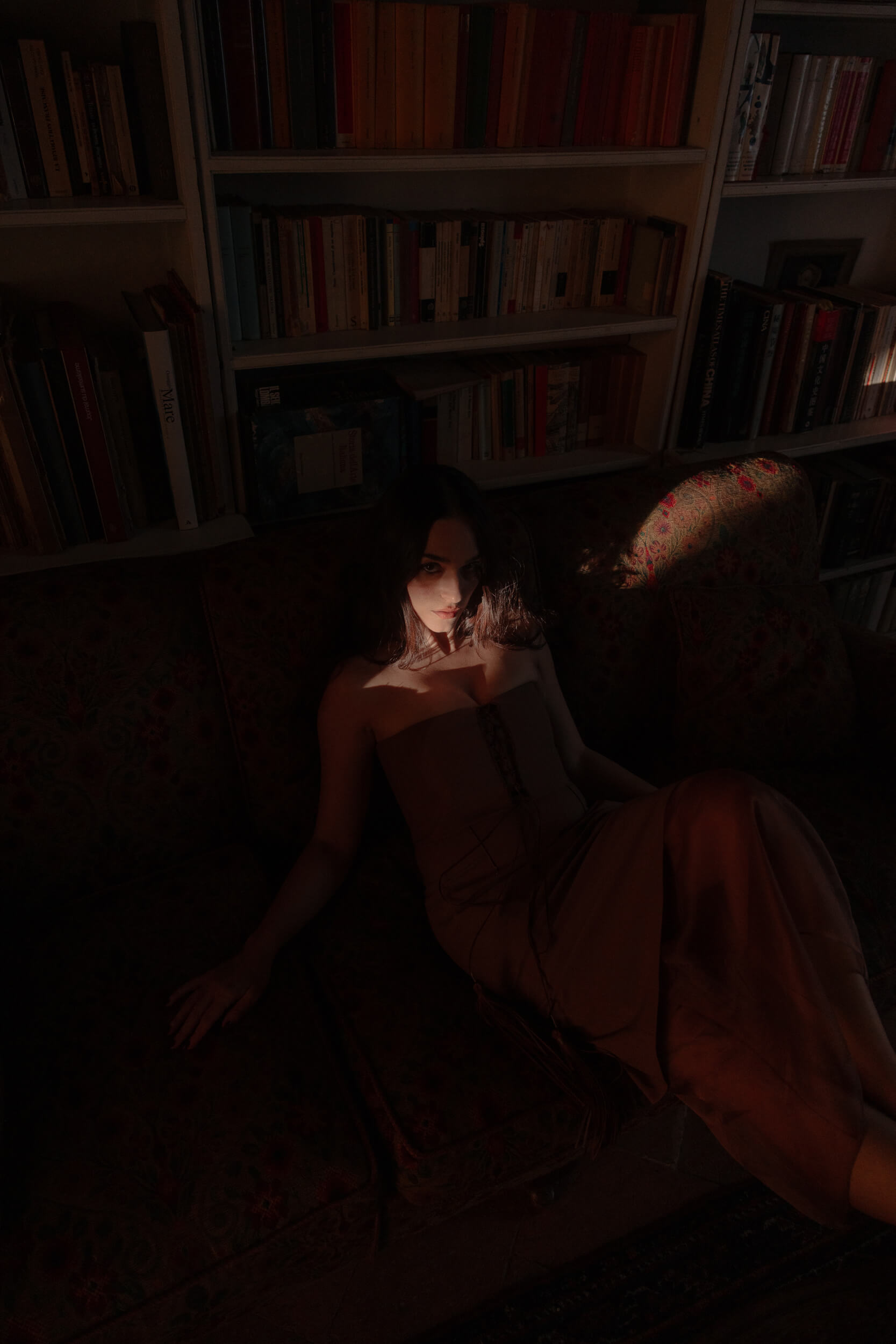
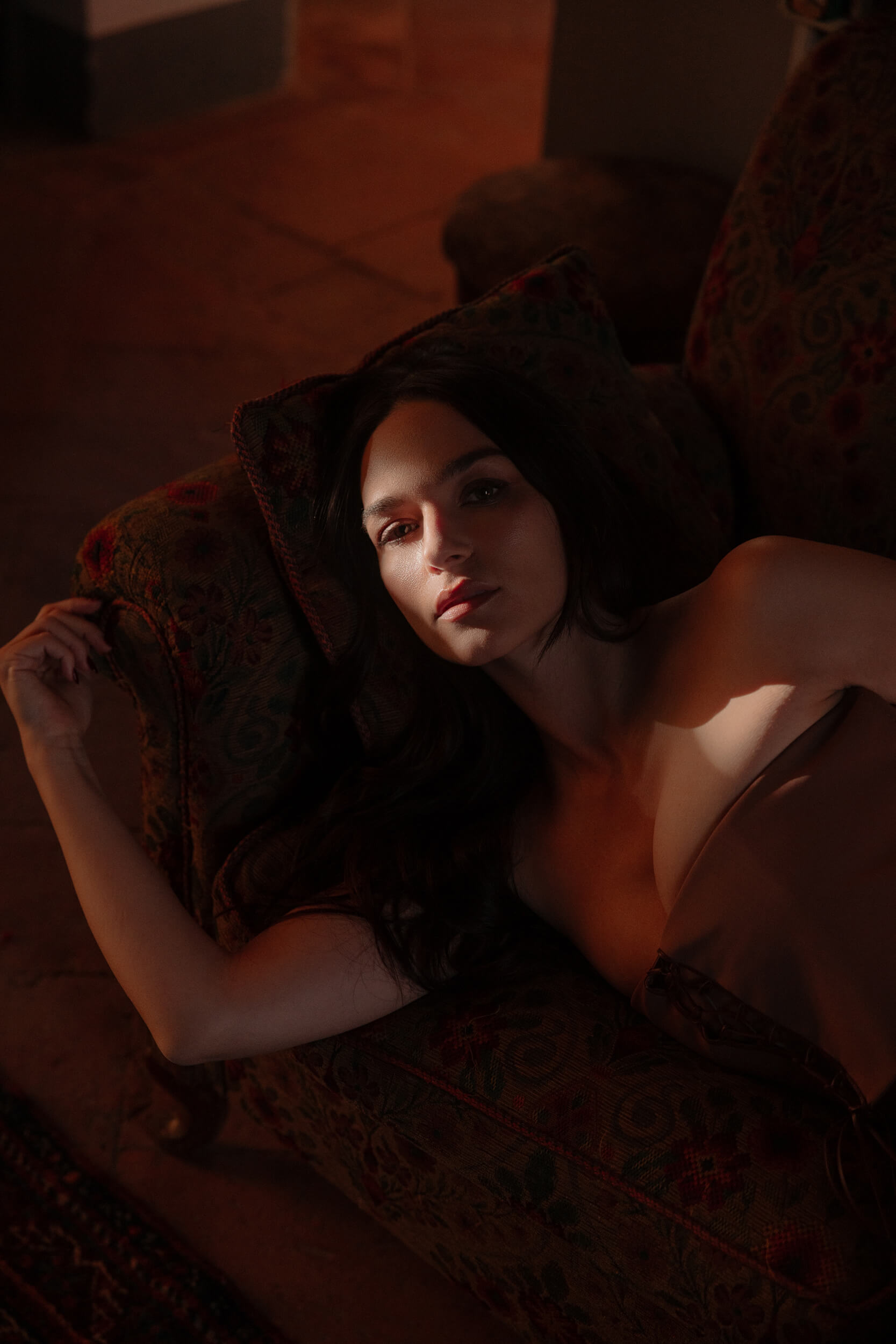
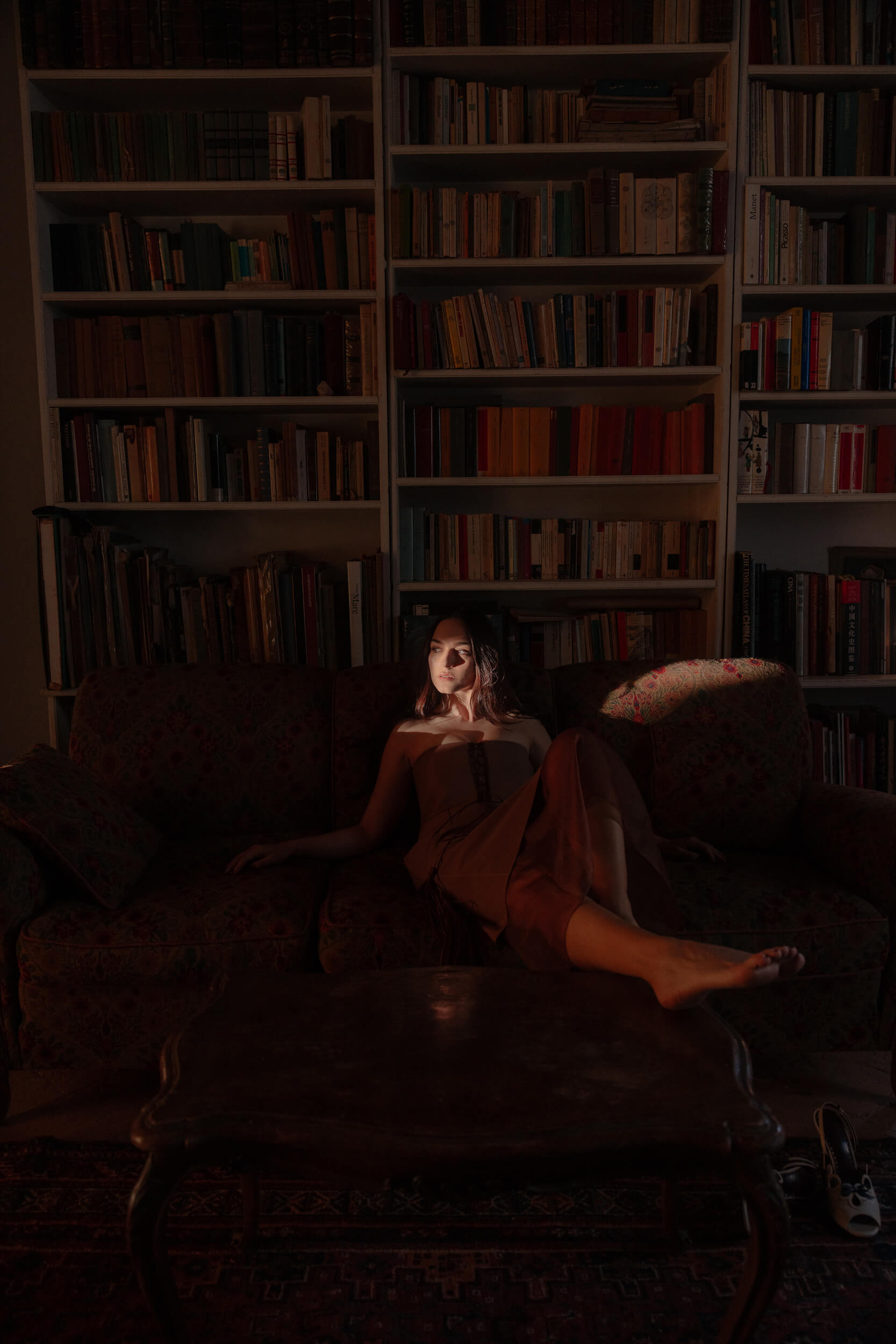
When Rocco or Marina or even Jennifer Coolidge’s character enter the house, they look at the photos, the house in general, and it’s like being in a museum of memories they weren’t part of. What’s your favorite memory of Marina?
Definitely the fake belly [laughs].
I wasn’t pregnant during filming, and preparing to play Marina, who’s pregnant, made me very anxious. I didn’t know how a pregnant woman sits, how she touches her belly… I was calling everyone: “Do you know anyone who’s pregnant? Who just gave birth? I need to ask questions.” Then I discovered it all comes naturally – maybe we women have a natural instinct that comes out when we have a belly, real or fake. During breaks, in my trailer, I’d be drinking coffee and instinctively caressing my belly – and then I’d stop and think, “What am I doing?” [laughs].
My “relationship” with the fake belly helped me a lot to get into character. A month later, I became pregnant for real, so Marina’s belly became a symbol I’ll never forget. It’s like they say, “Life imitates art, art imitates life.”
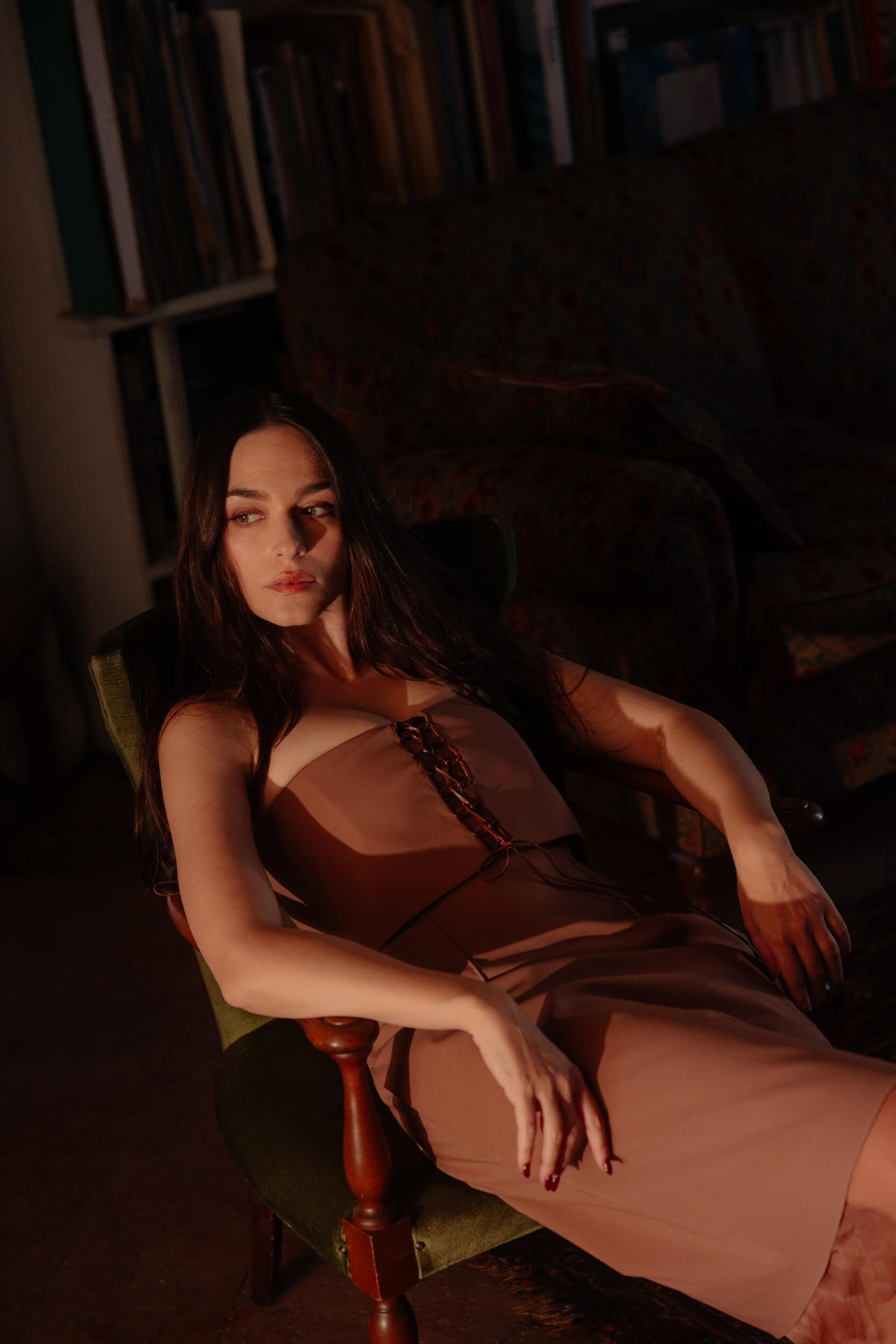
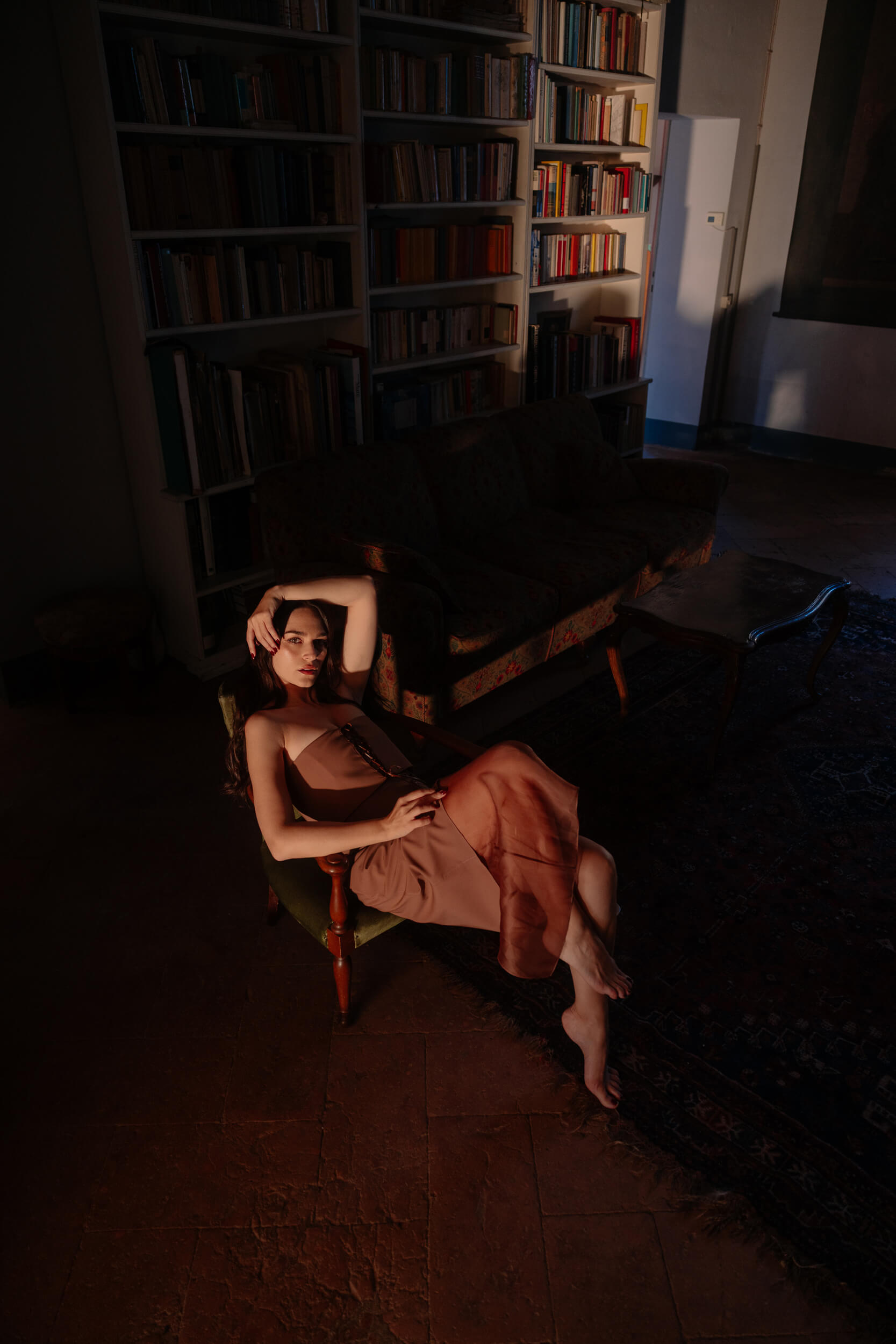
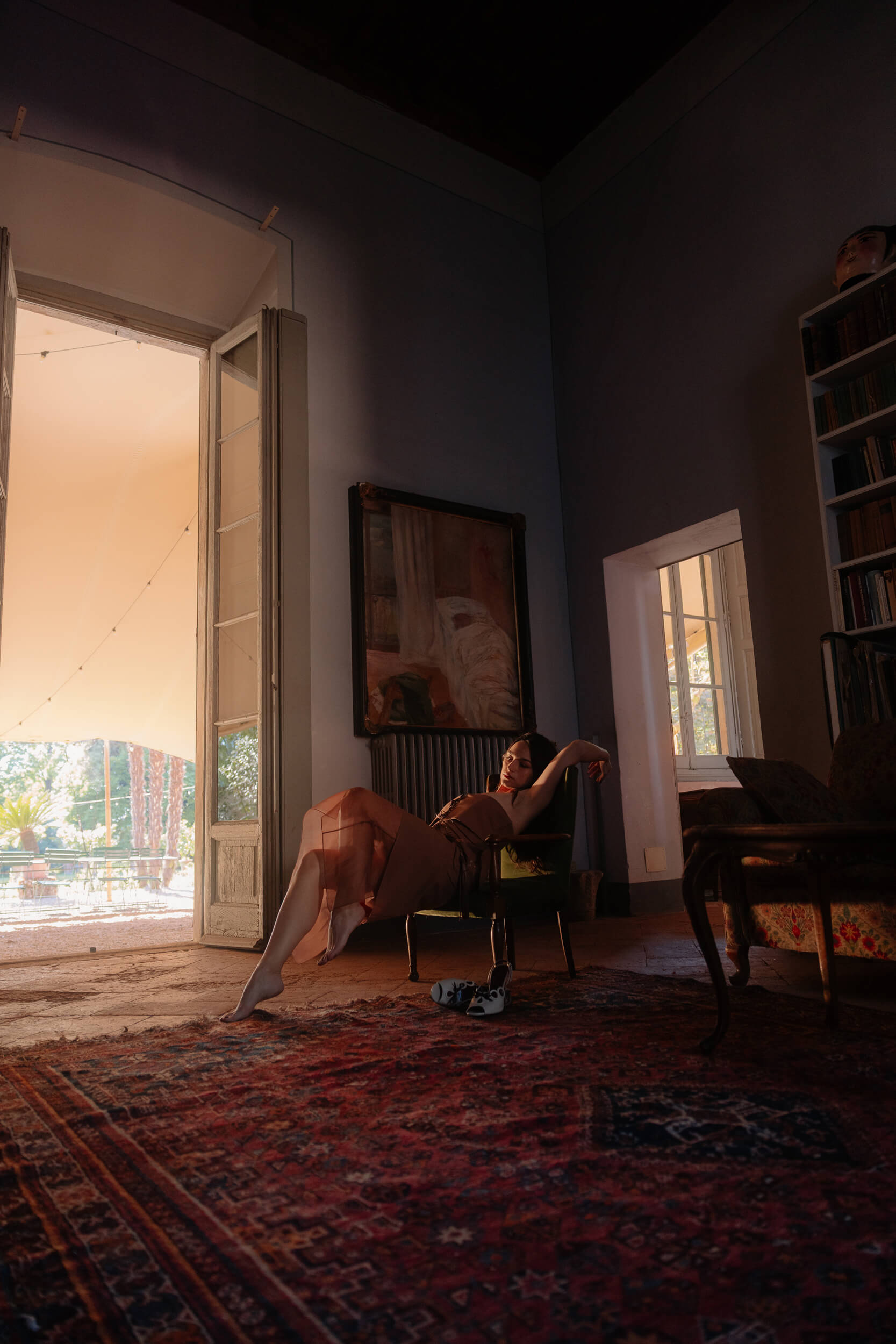
I always feel like you actors, since you have to embody so many different characters, end up discovering parts of yourselves you didn’t know before. Acting becomes a kind of therapy, a way to constantly uncover new aspects of who you are. What’s the last thing you discovered about yourself through your work?
Every set is different, but I always say: you leave the character when filming ends, but the character never leaves you. In the case of “Riff Raff”, Marina left me… her belly.
Each time, you discover something different about yourself depending on the role, especially since being an actor means being vulnerable – and in vulnerability, there are so many hidden things.
Sometimes a strong character can leave you their strength, the kind you might not bring out in real life, but through acting – through an intense role – you find it inside you.
Being vulnerable is essential to approaching any role: you need confidence to play characters you never imagined you’d play, but also vulnerability to shape them. When we act, we must abandon ourselves – while still remaining ourselves.
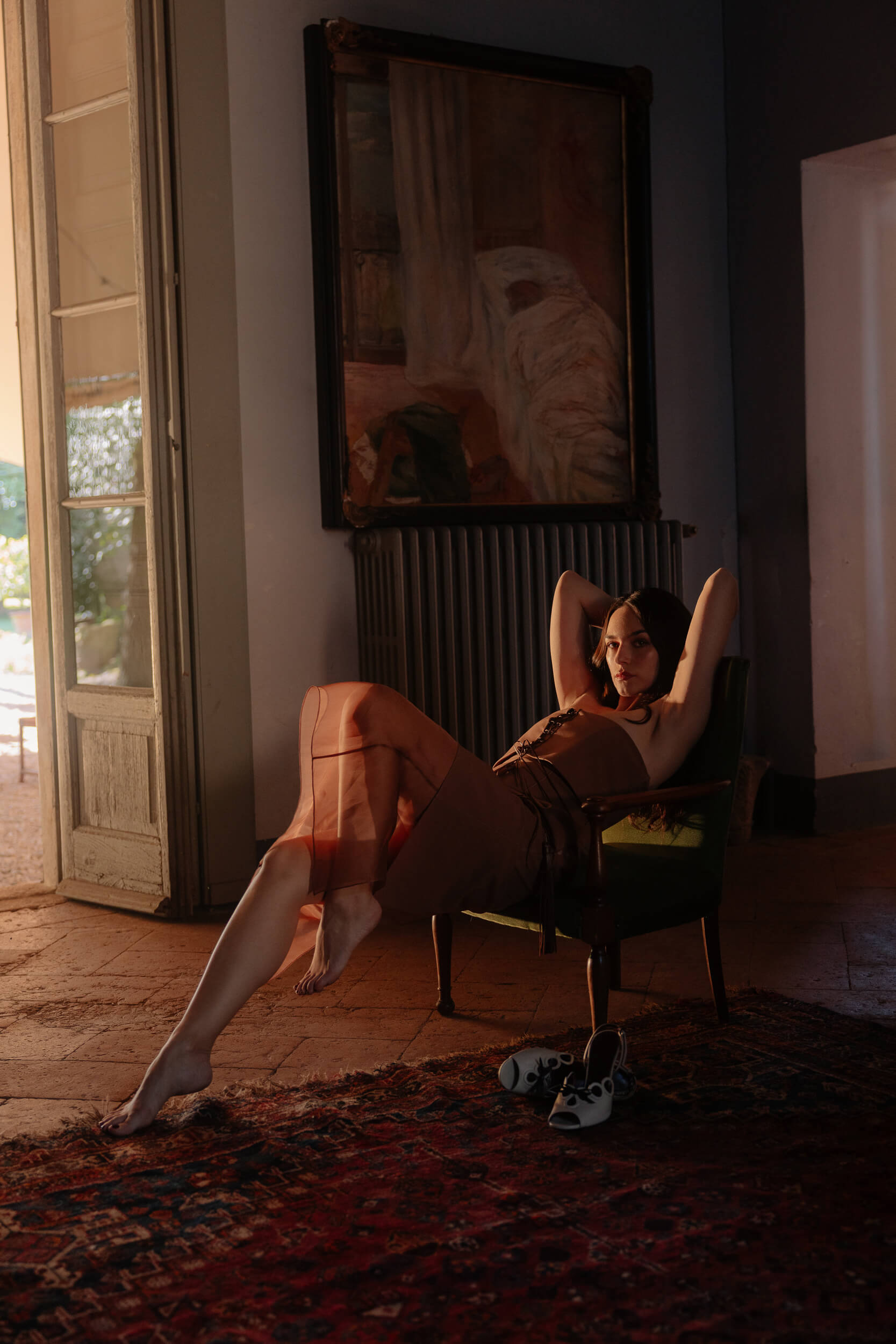
I think you actors have an enormous amount of empathy and, above all, a lack of judgment—which is helpful if, one day, you had to play a serial killer…
Yes, exactly, and as you said, acting is therapeutic. If I could go back, I’d study psychology, it would be fascinating to analyze how the human mind works in different situations, how it approaches certain contexts and roles.
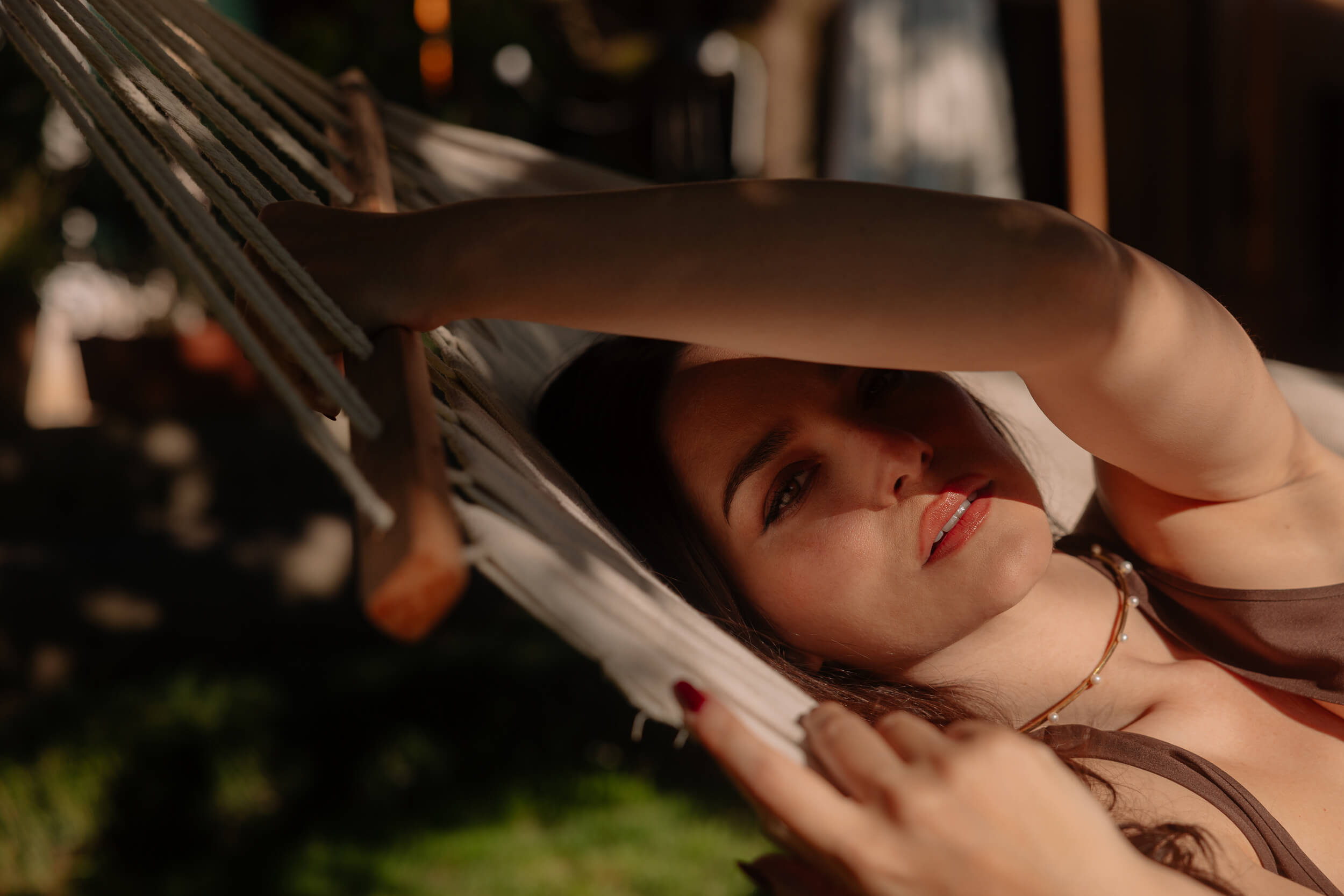
“Acting is therapeutic”
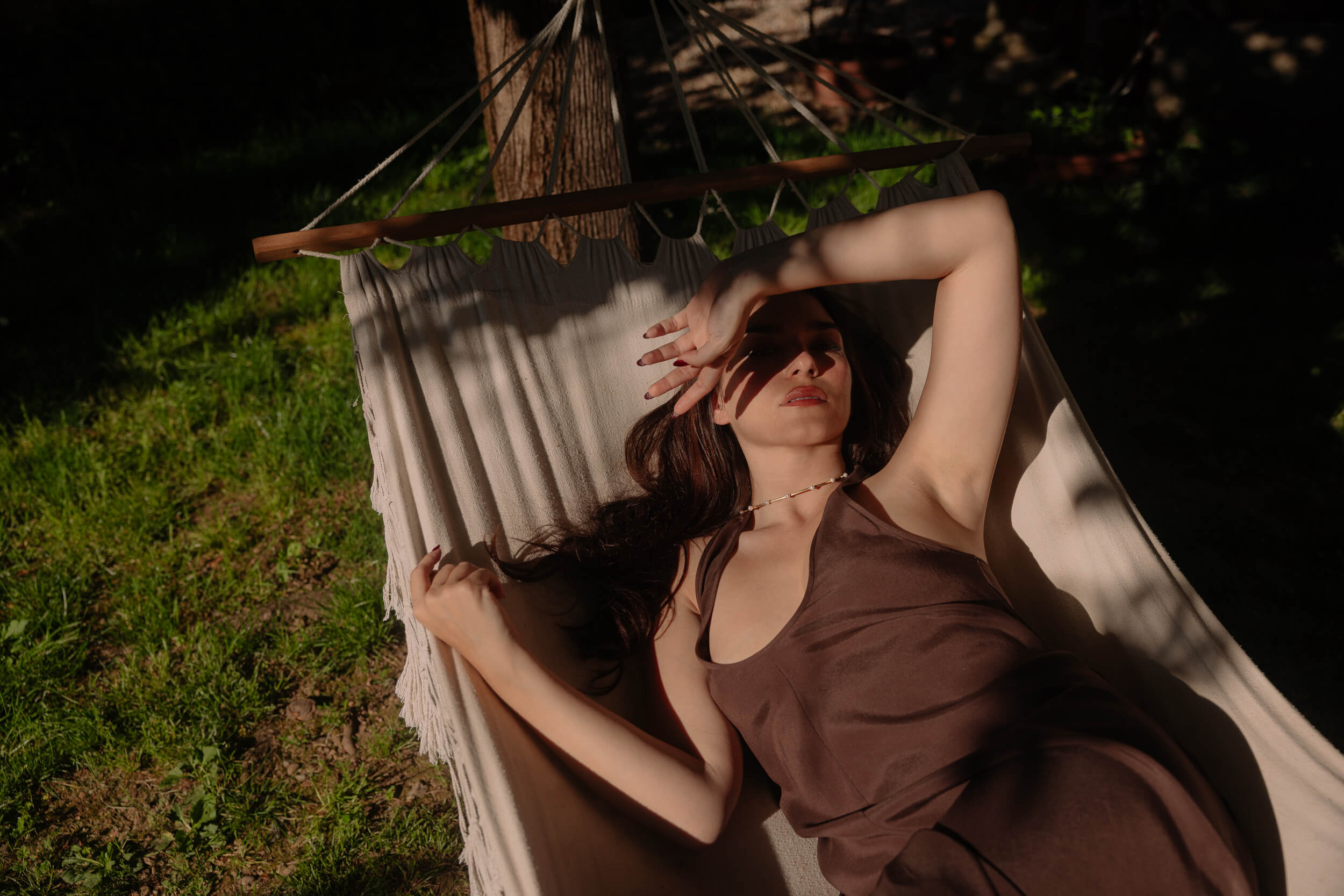
What’s been your biggest act of rebellion so far?
When I was 15-16, I went through a rebellious phase. I dressed punk, got my ears pierced behind my parents’ backs, wore Converse without tying the laces, only wore black jeans and pants. I used to dress very feminine, but that year I had a kind of metal-punk phase. I had light-colored hair, and one day I came home with a blue-black hair dye I had bought, it wasn’t even permanent. That was the time I started trying my first cigarettes, skipping school now and then… I was a rebel.
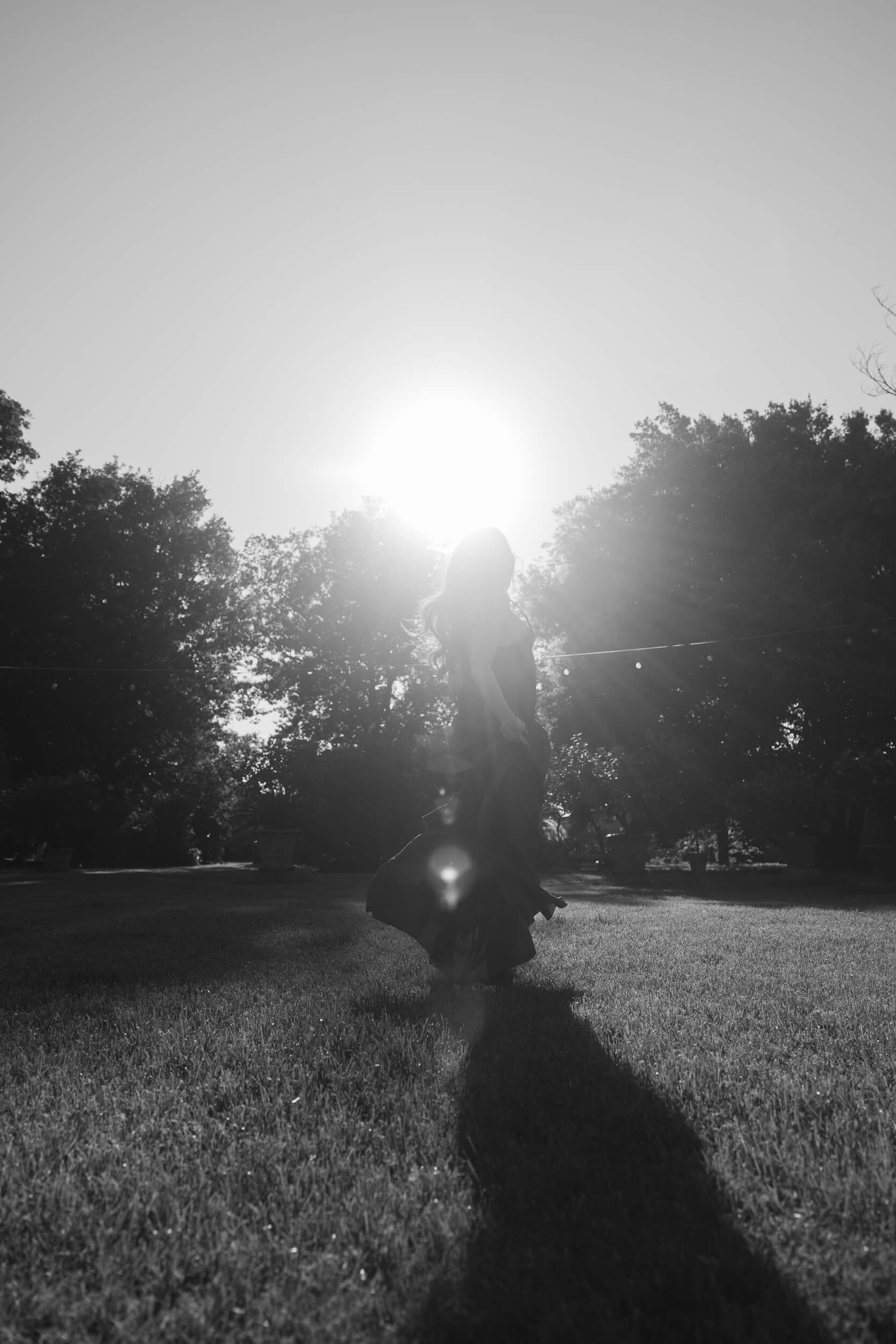
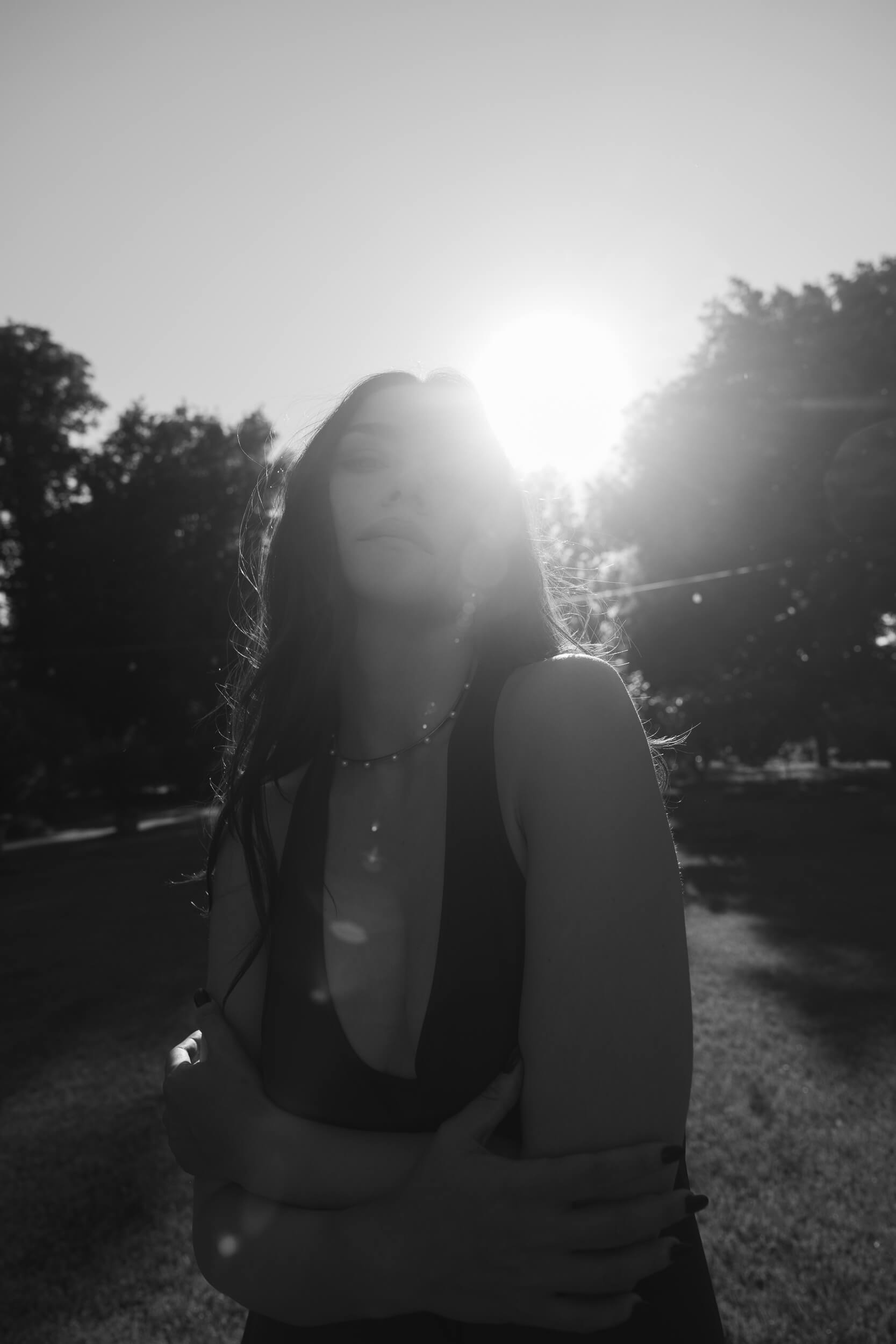
And your greatest fear?
My greatest fear is definitely losing someone I love, a member of my family.
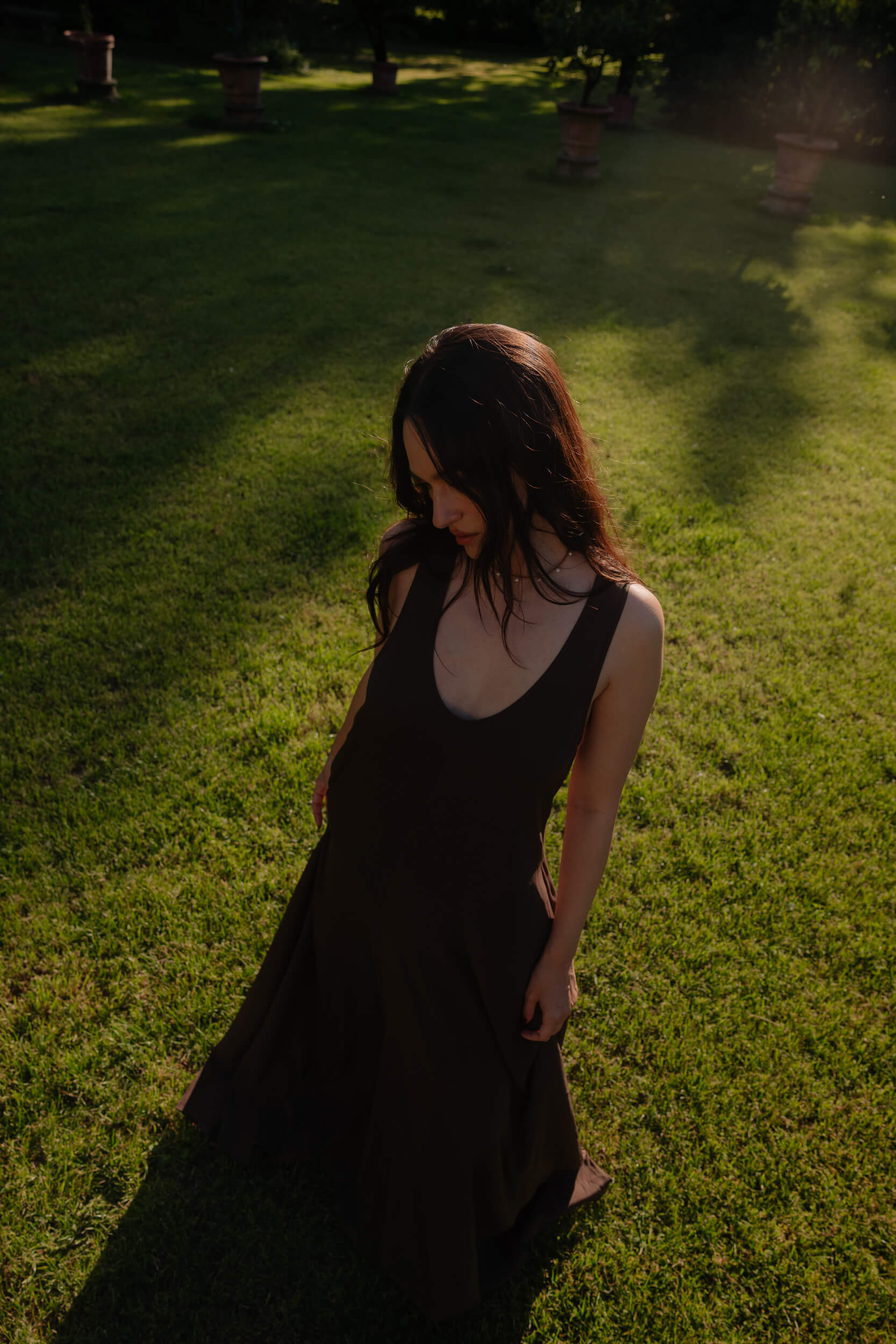
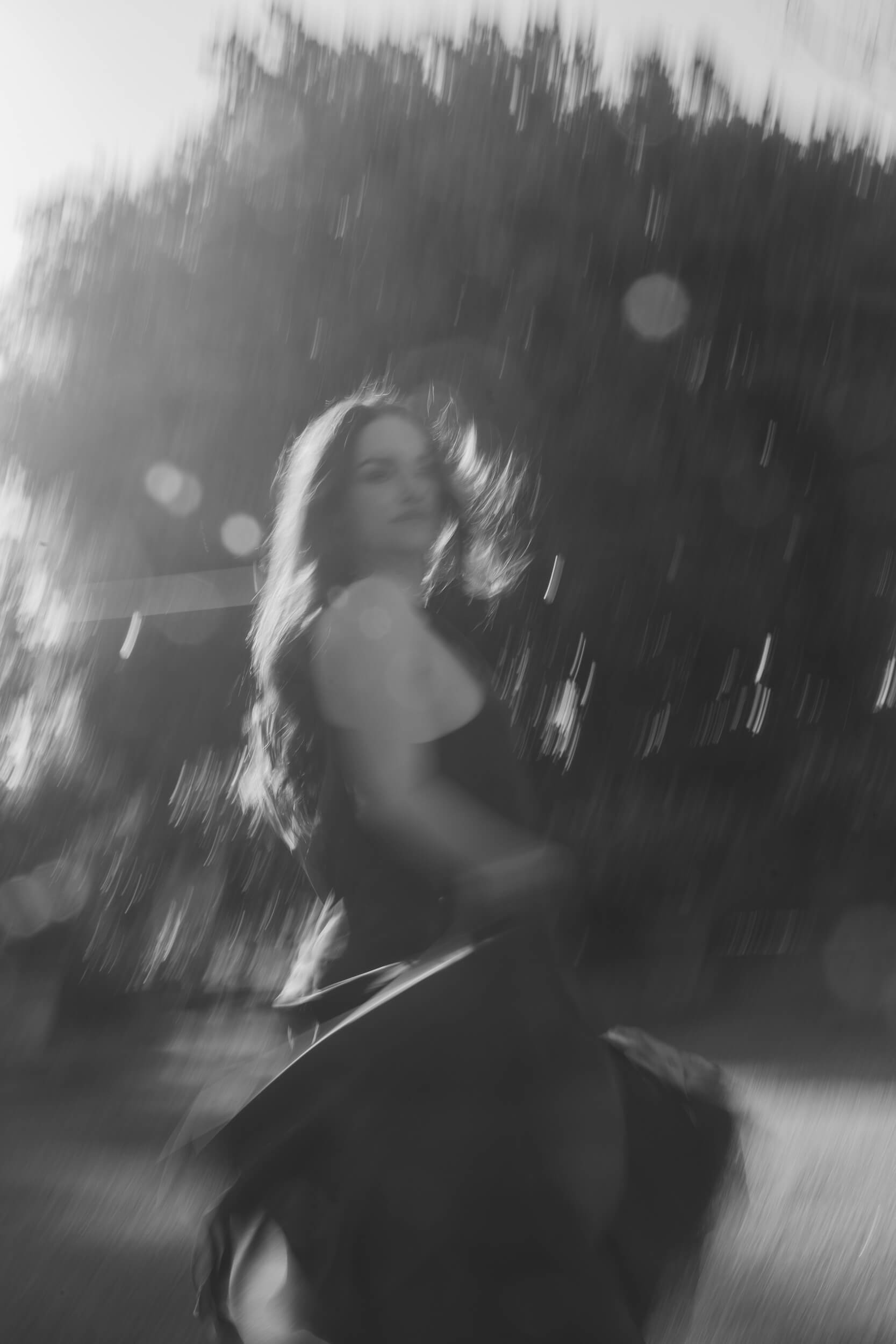
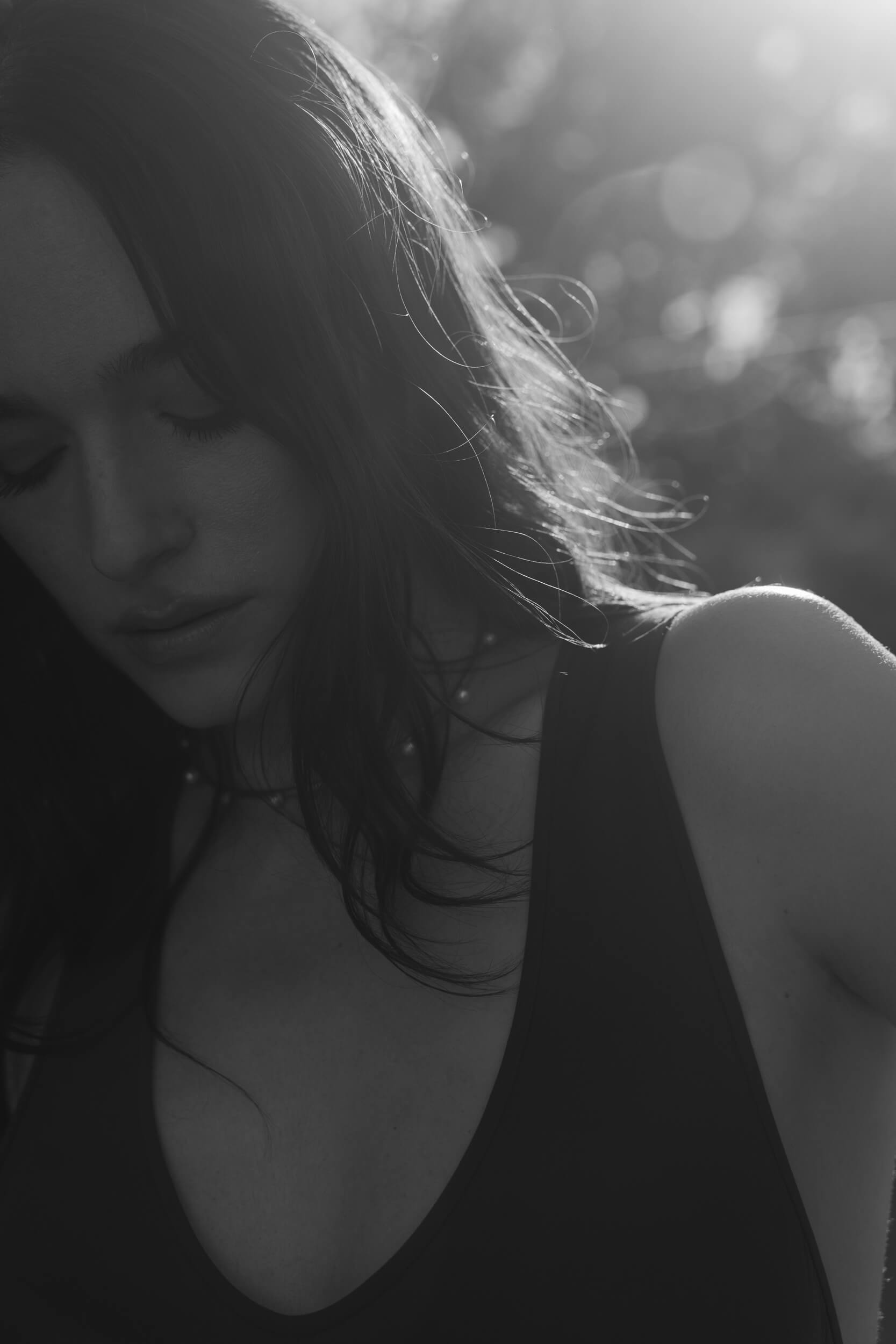
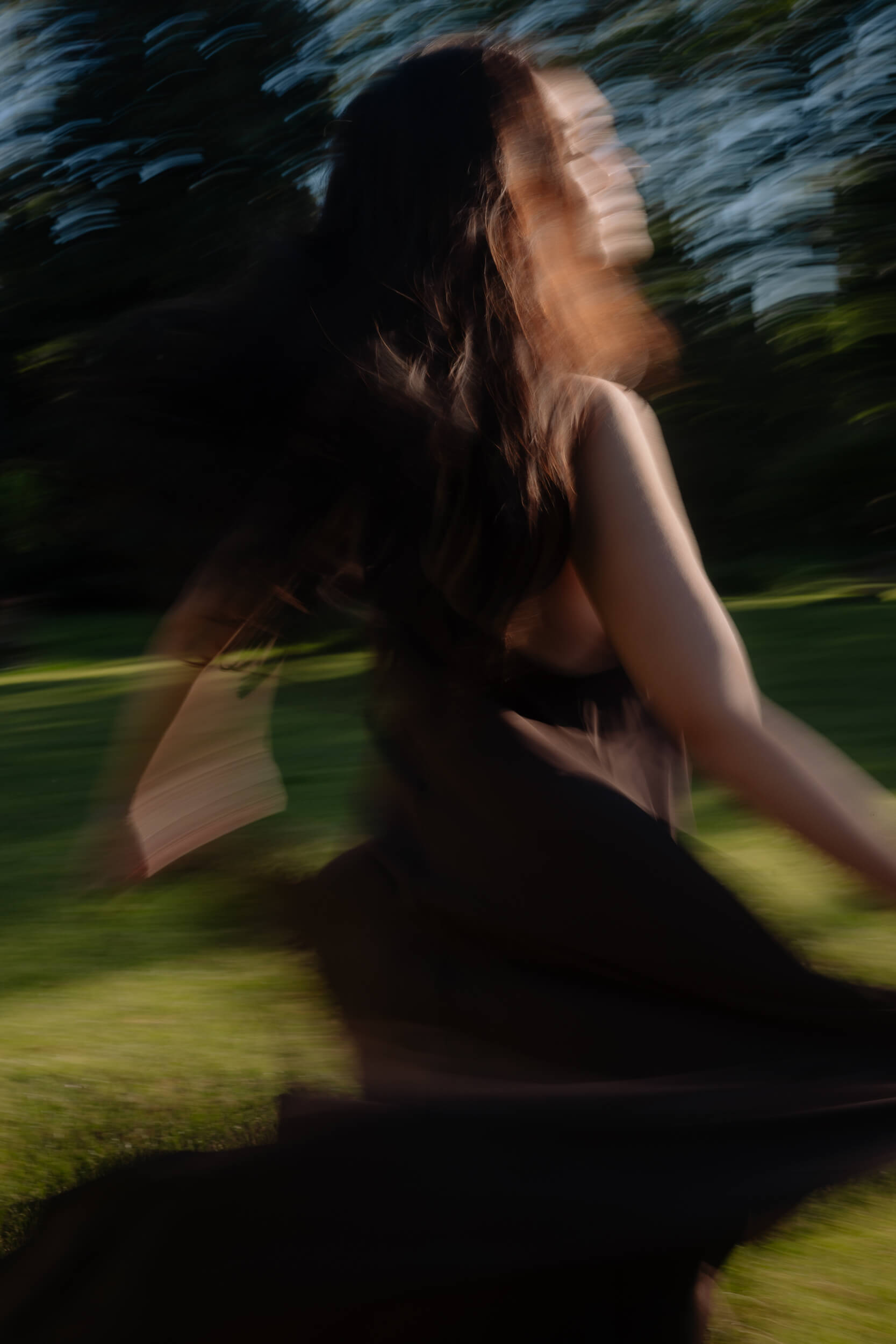
And your greatest act of courage?
My biggest act of courage was never giving up. When you move to a country like America, coming from a small town, you’re afraid. I was especially scared I wouldn’t grow in my field, wouldn’t reach the goals I had set for myself, wouldn’t succeed. But I had the courage to keep going. Even now, it’s still about not giving up, because my field is one where you’re always growing, facing new sets, new adventures, new characters.
I believe that not even the most famous artists feel they’ve “made it” – an artist is always seeking something more.
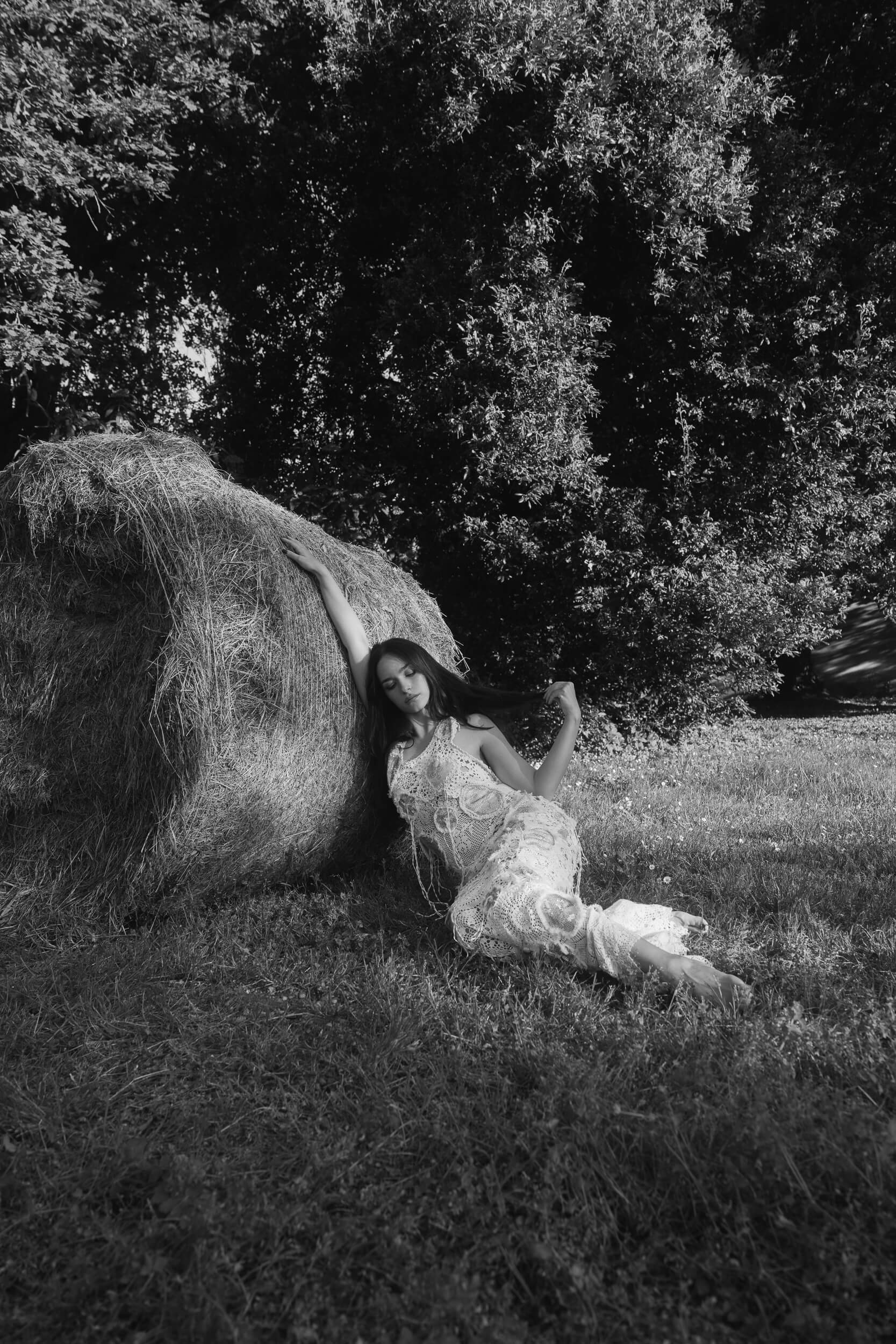
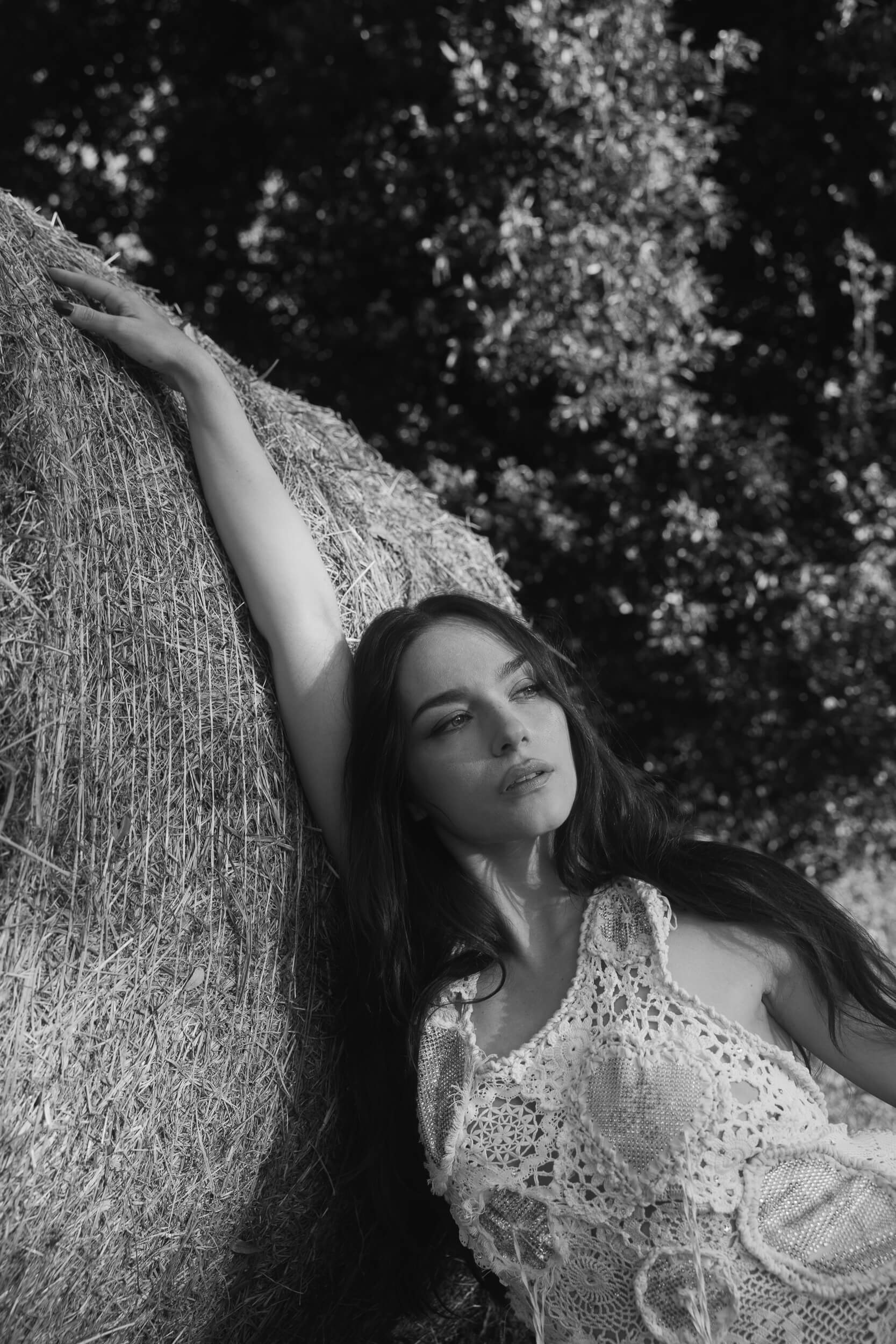
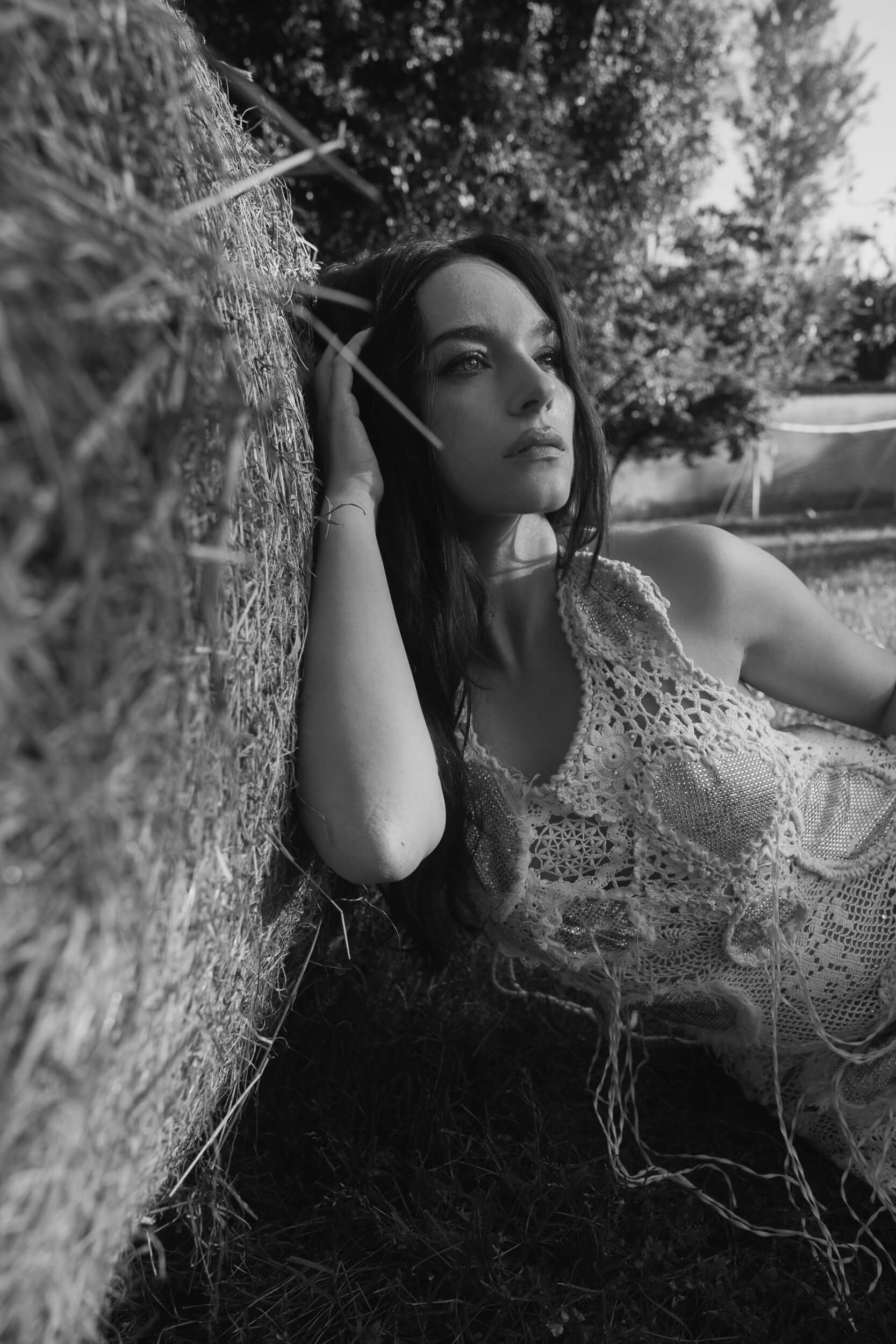
And that’s how it should be, because otherwise, if you felt “complete,” maybe you’d lose the motivation to keep growing.
Exactly. If you feel like you’ve arrived, you lose the adrenaline, the desire, the emotion that are so important for discovering new characters, new sets, for telling stories.
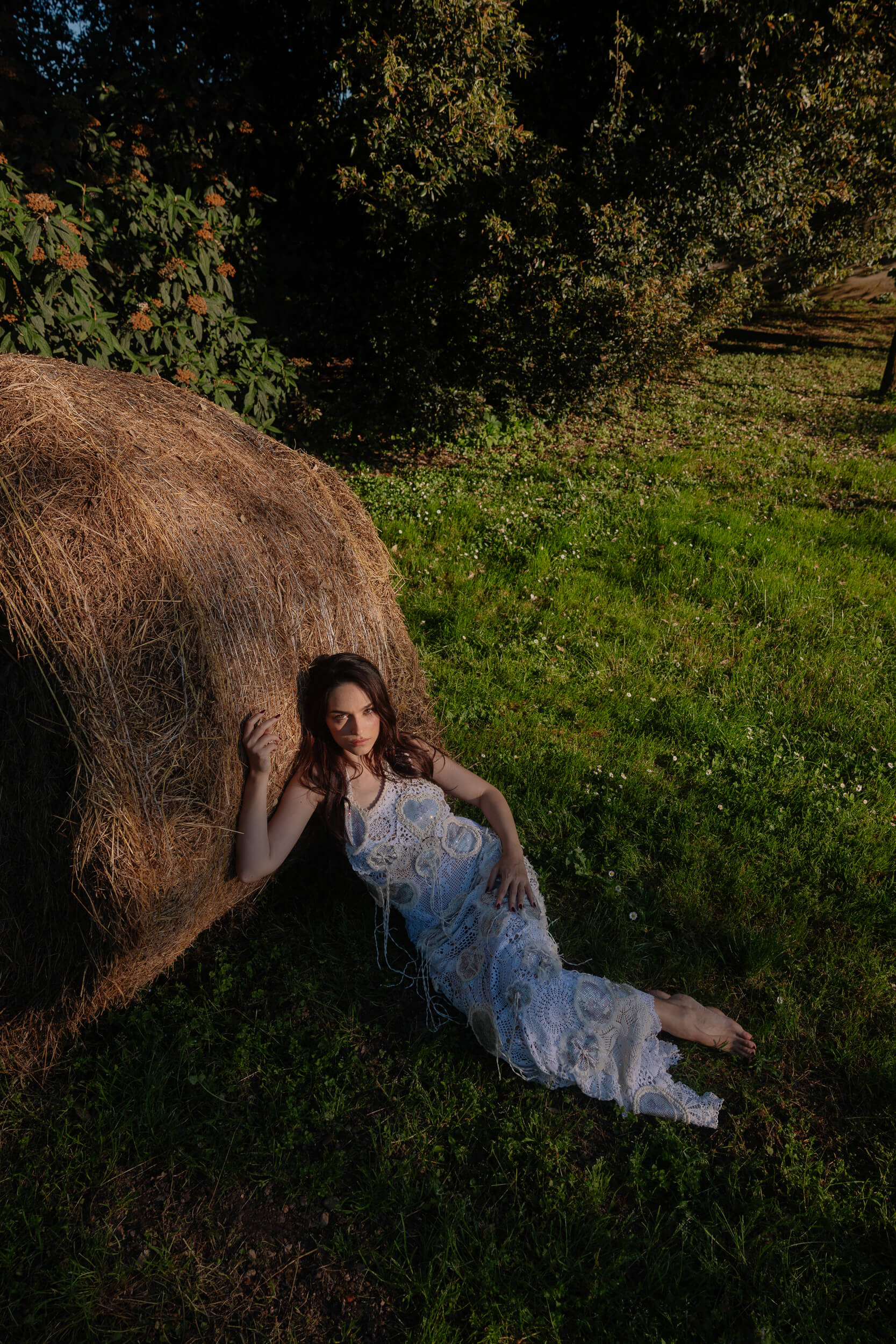
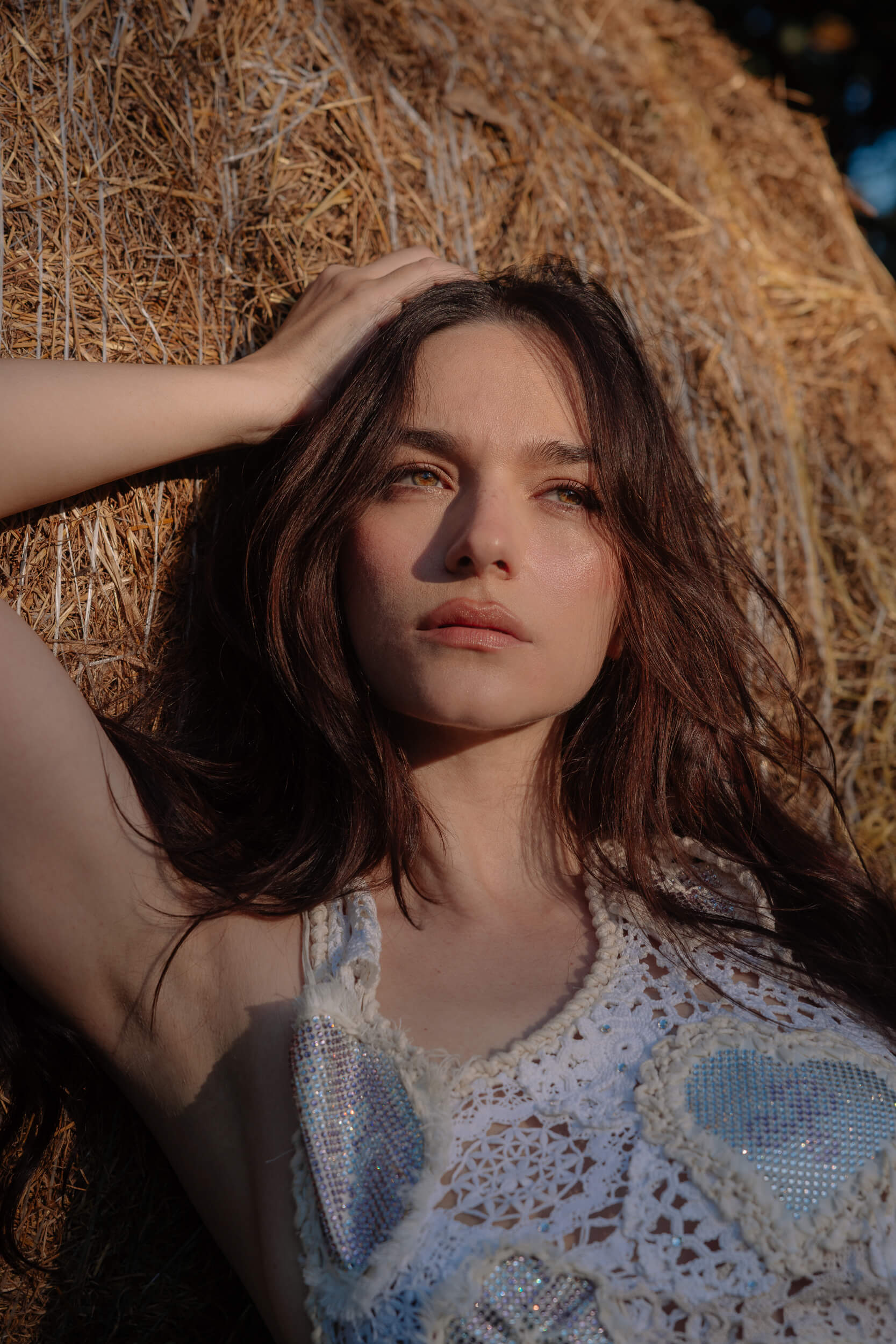
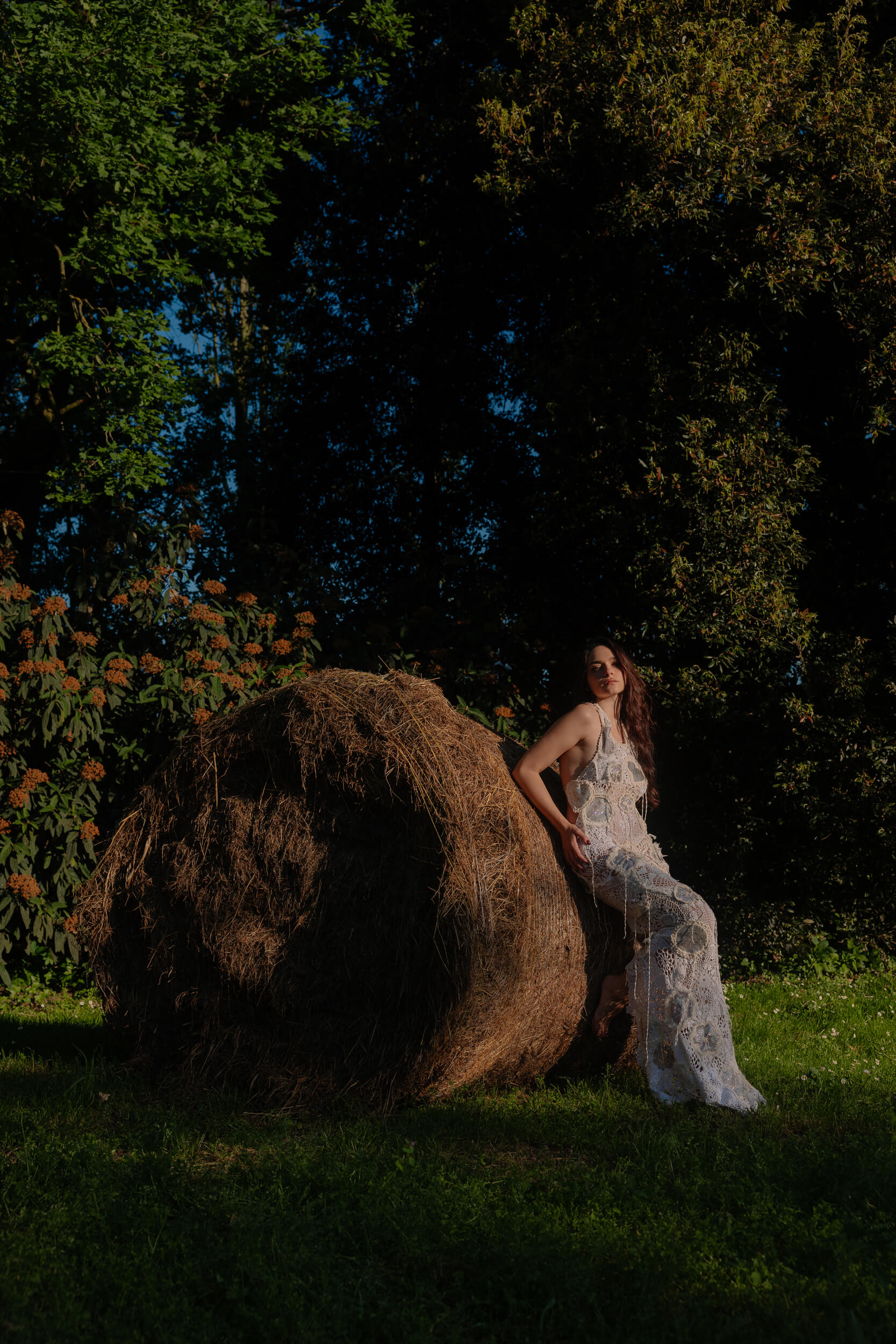
And what does it mean for you, especially in this fast-paced world, to feel comfortable in your own skin?
Feeling comfortable definitely involves accepting that, for better or worse, people judge you. We live in a reality where judgment is part of life.
In my opinion, surrendering to the fact that we’ll be judged – one way or another – can give us a sense of freedom, but also awareness and confidence, which then help us feel good about ourselves and others. Because in the end, if you’re confident, loved, protected, you feel good in your own skin.
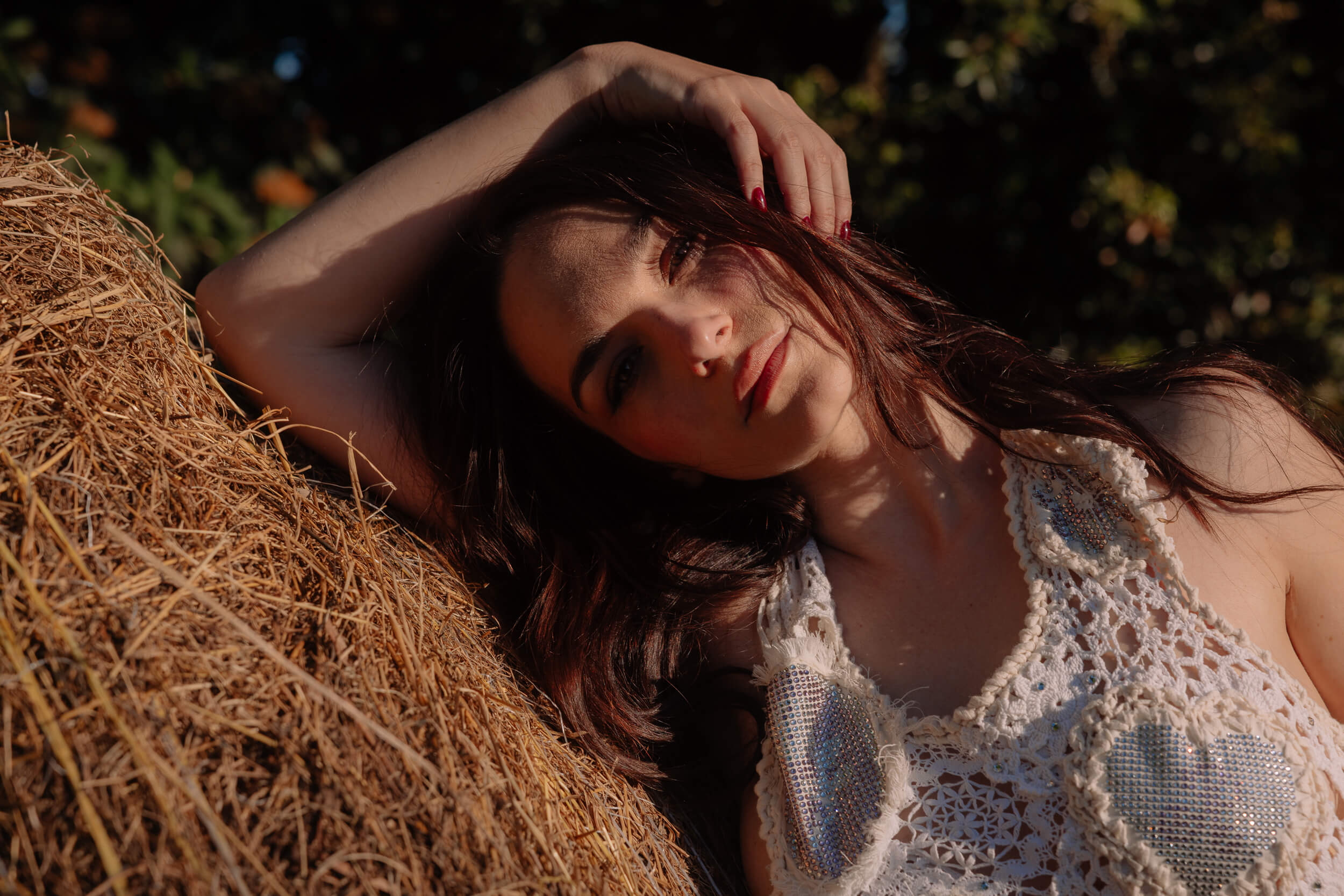
“Because in the end, if you’re confident, loved, protected, you feel good in your own skin.”
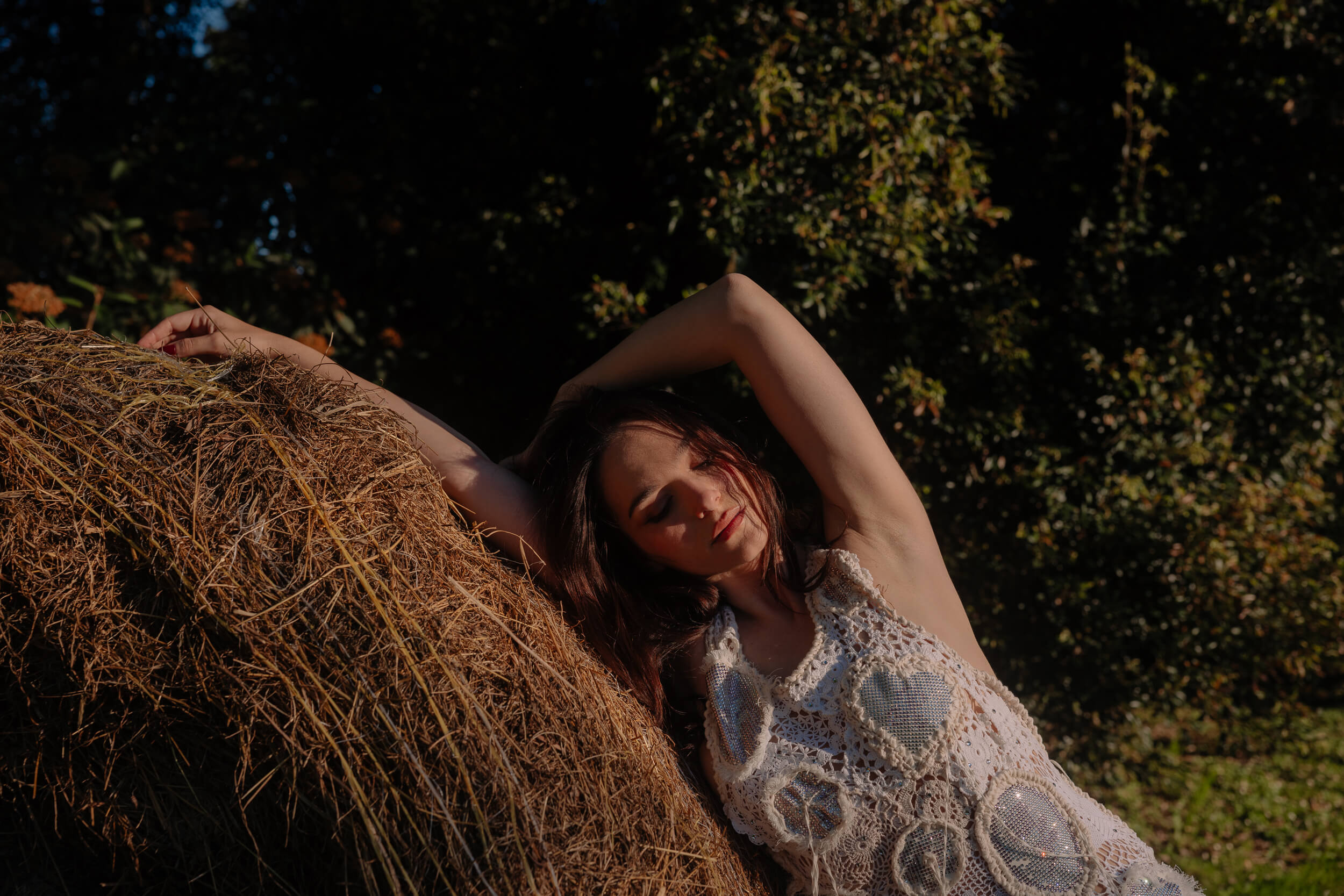
And finally, what’s your happy place?
My happy place is the people I love. Wherever I am, but with the people who love me and whom I love. That’s what really matters. As actors, we travel so much, but going back to that happy island where family is, that’s what brings me the most peace and fulfillment.
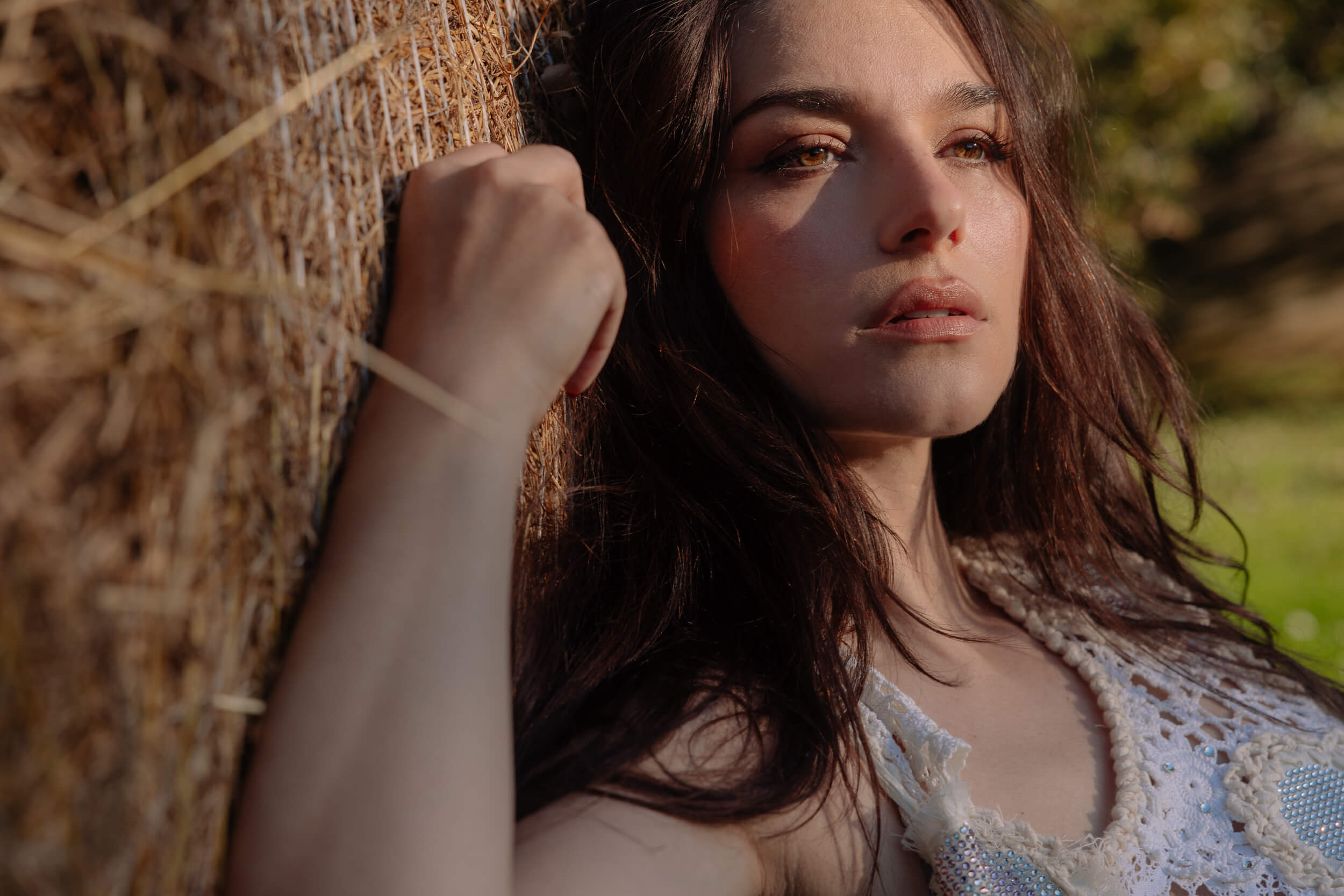
Photos & Video by Johnny Carrano.
Hair & Makeup by Silvia Acquapendente.
Styling by Ilaria Di Gasparro.
Location: Casa Mantegazza.
Thanks to M Punto.
LOOK 1
Dress: Zimmerman
LOOK 2
Dress: Gabriele Colangelo
Shoes: Antonio Marras
LOOK 3
Dress: Christian Boaro
Necklace: Alice Sambenati
LOOK 4
Dress: Marco Rambaldi

